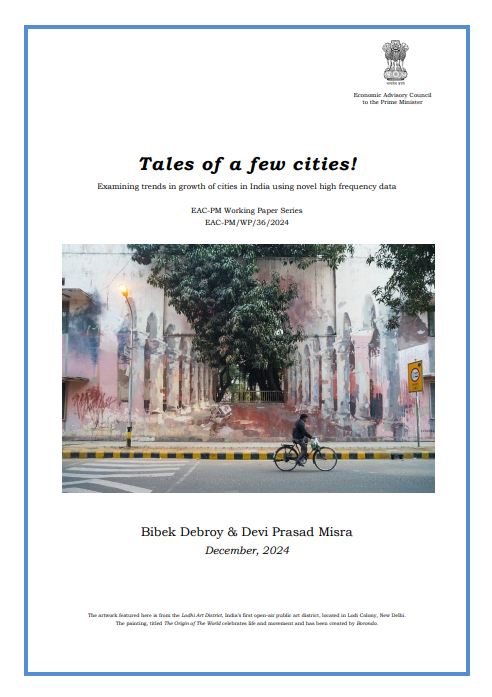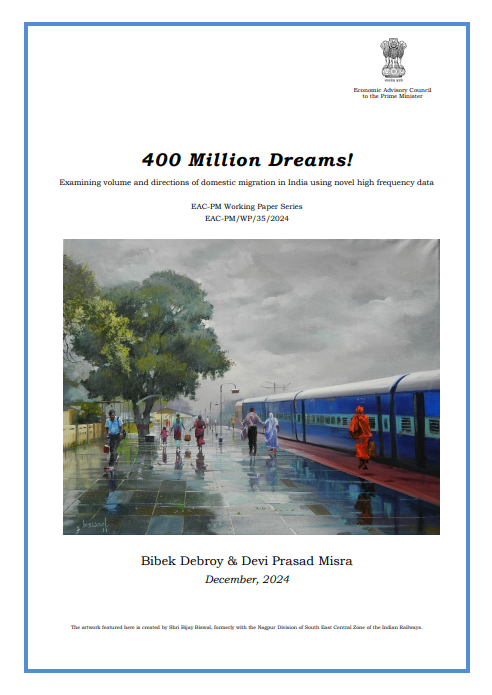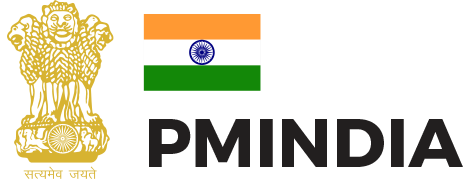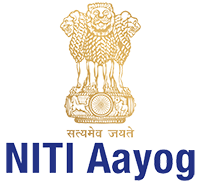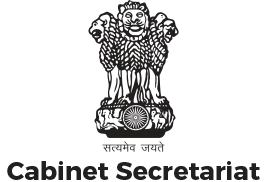Reports
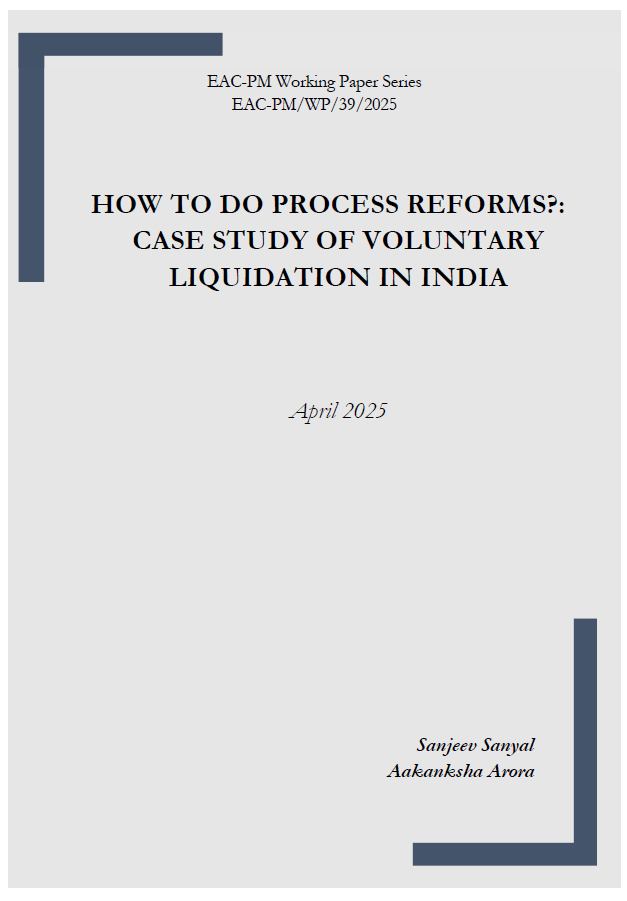
HOW TO DO PROCESS REFORMS?: CASE STUDY OF VOLUNTARY LIQUIDATION IN INDIA
Large number of process reforms have been done in recent years- including simplification of administrative
processes, changes in regulations and legislations, removing obsolete laws, closure of outdated government
entities and so on. Even if these changes appear small in many cases, they have led to significant efficiency
gains in the overall system. In this paper, we illustrate the impact of process reforms in the area of voluntary
liquidation of companies.
The purpose of this paper is to provide a case study of how a problem is identified, solved and the outcome
measured. The hope is that such a systematic study will lead to institutionalization of such reforms.
The bulk of companies that shut down worldwide every year are voluntary, rather than due to involuntary
causes such as insolvency or bankruptcy. In India, there are two main routes for voluntary liquidation. One
is under Section 248 of the Companies Act, 2013 and the second is Section 59 of the Insolvency and
Bankruptcy Code. For both, the process was very complicated and time-consuming until very recently as was
pointed out in the Government of India’s Economic Survey 2020-21 and 2021-22. The process reforms
carried out since then have completely changed the outcome.
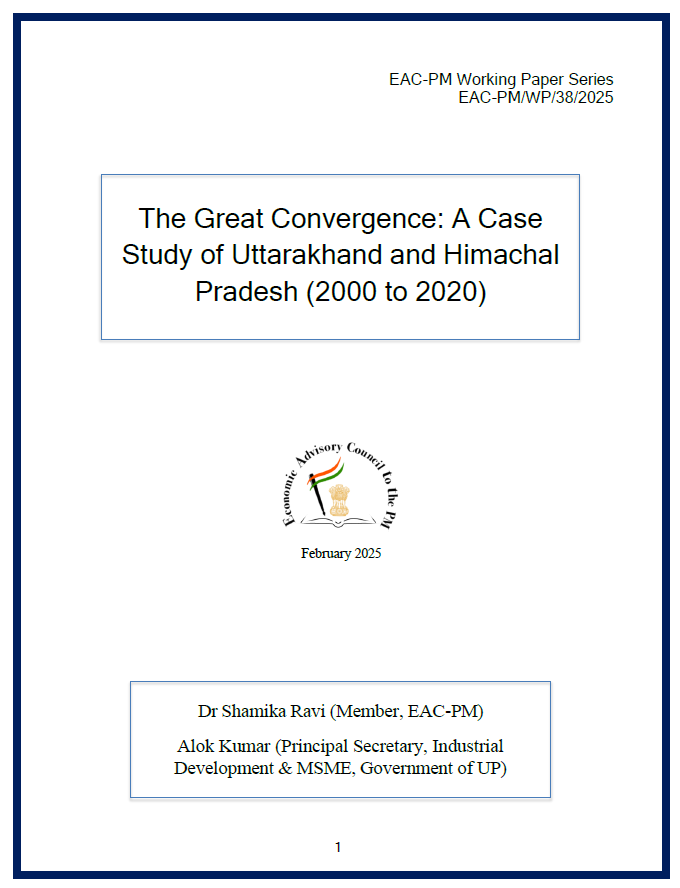
The Great Convergence: A Case Study of Uttarakhand and Himachal Pradesh (2000 to 2020)
We compare the growth and transformation of Uttarakhand (UK) economy to that of Himachal
Pradesh (HP) over a period of two decades [2000-2020]. In particular, we examine the changes
in the industrial sector output, particularly in view of the Concessional Industrial Package (CIP)
for the Hill States announced by the central government in January 2003. What emerged
subsequent to the central government’s announcement is akin to a ‘natural experiment’ given the
close similarities of the two neighboring states. We study the approaches of the two states in
response to the CIP which resulted in differing long-term trajectories of growth for the two
neighbors. The only fundamental difference between the industrial policies of the two states was
in their land policies, while all others were identical. We find that UK was able to rapidly catchup and subsequently exceed the per capita income of HP within a relatively short period of time.
The state was able to better leverage the benefits of the CIP owing to a proactive and dedicated
approach to town planning and land use policy which has emerged as one of the most critical
impediments to industrialization and urban growth across India. We further investigate the
impact of subsequent industrialization on tax revenues and spending patterns of the two states
over two decades.

Time Spent on Employment-Related Activities in India: A Note
Recent remarks by leaders of corporate India have sparked an interesting public debate.
Their general point is that if India wants to become a developed nation, people will have to
work 70 hours a week or more. Assuming a six-day work week, this translates to 700
minutes per day on employment-related activities. So far, the public discussion has mostly
focused on efficiency versus quantity of work. Though this is an important aspect, it is
imperative to first understand how things stand on the ground by studying the available data.
That is, how much time is spent on employment-related activities across states, different
economic sectors, types of enterprises, rural versus urban differences, and differences
across genders and social groups within the country. In addition, this note also provides
evidence of the association between time spent on employment-related activities and the per
capita Net State Domestic Product (NSDP) at constant prices.
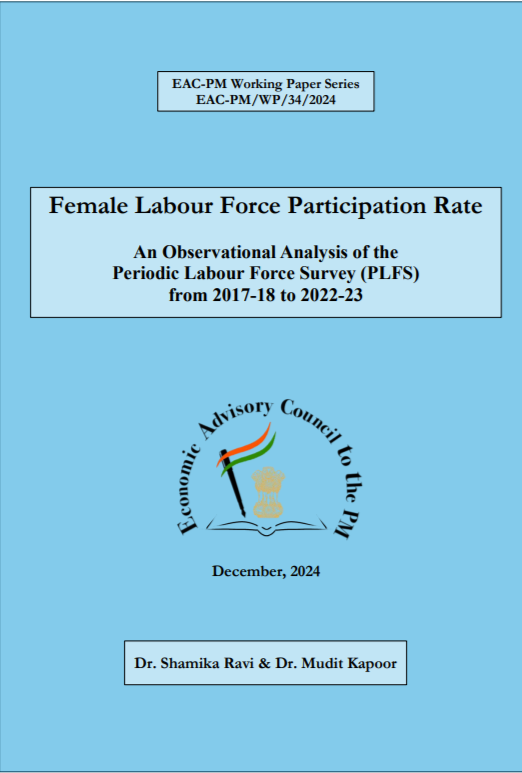
Female Labour Force Participation Rate
The female labour force participation rate (LFPR) is a crucial indicator of women’s economic
empowerment and overall economic inclusiveness. This research paper presents econometric
analysis highlighting a significant resurgence in female LFPR across Indian states, especially
in rural areas, since 2017-18. There are three broad themes for the empirical analysis: (1)
Recent trends in female LFPR, (2) The effects of marital status and parenthood on LFPR, and
(3) LFPR variations with age and gender across all regions and states of India.
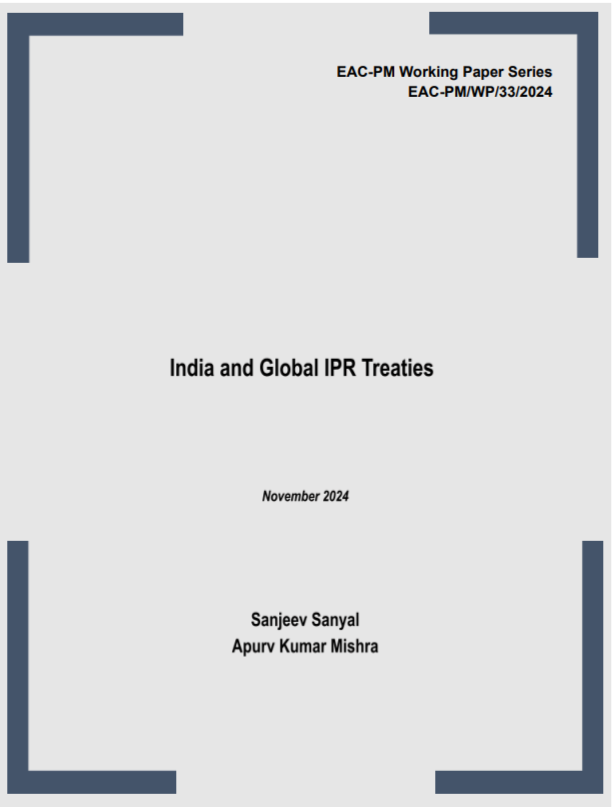
India and Global IPR Treaties
To become an international player in the knowledge economy, India needs to take global IPR
treaties more seriously as these agreements create the framework for the country’s R&D
ecosystem to align with global best practices and accurately benchmark our performance with
international peers. In this EAC-PM Working Paper, we explore 4 such international agreements
and look at the pros and cons of each of them. These are the Strasbourg Agreement
Concerning the International Patent Classification 1971, Geneva Act of the Hague Agreement on
Industrial Designs 1999, Geneva Act of the Lisbon Agreement on Geographical Indications 2015
and the Design Law Treaty 2024.
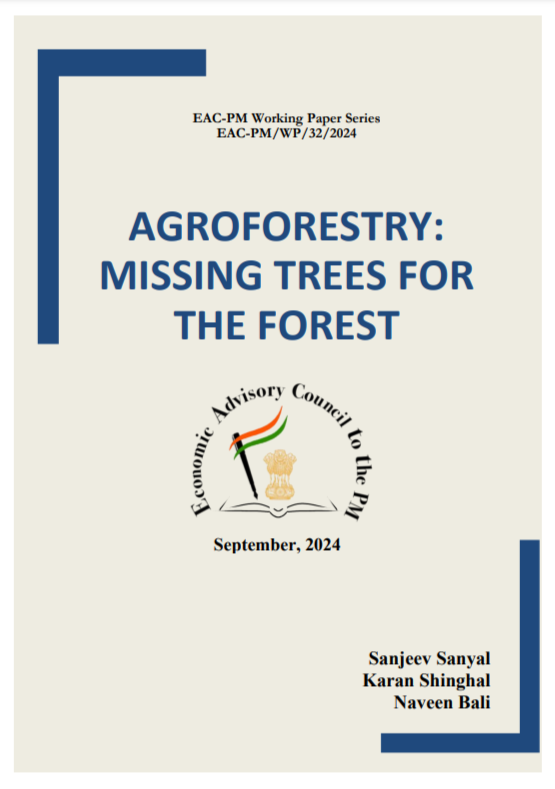
AGROFORESTRY: MISSING TREES FOR THE FOREST
Despite being a tropical country, India has not been able to unlock the full potential
of agroforestry. India’s agroforestry sector remains under-utilised and stifled by regulation.
According to a study published in the journal of “Environment, Development and
Sustainability”, as of 2021, the area under agroforestry (defined as tree cover per cent greater
than 10 per cent on agricultural land) is estimated to be around 28 million hectares, which is
a mere 17 per cent of total agricultural land and is far less when compared to the global
average of 43 per cent. Agroforestry is India’s primary source of timber. As per the Indian
Council on Forest Research and Education (ICFRE), over 93 per cent of India’s domestic
timber was produced by “trees outside forests”, a majority of which are agroforestry plots.
However, a stringent, complex and cumbersome regulatory policy combined with a
conservation-led approach to forestry has stifled the growth of agroforestry in India.
Consequently, India has become a net importer of timber. In 2023, India imported over
USD 2.7 billion worth of timber1
(ITTO 2023), which equals almost 12 per cent of all agrobased imports for the same year (Damodaran 2024)
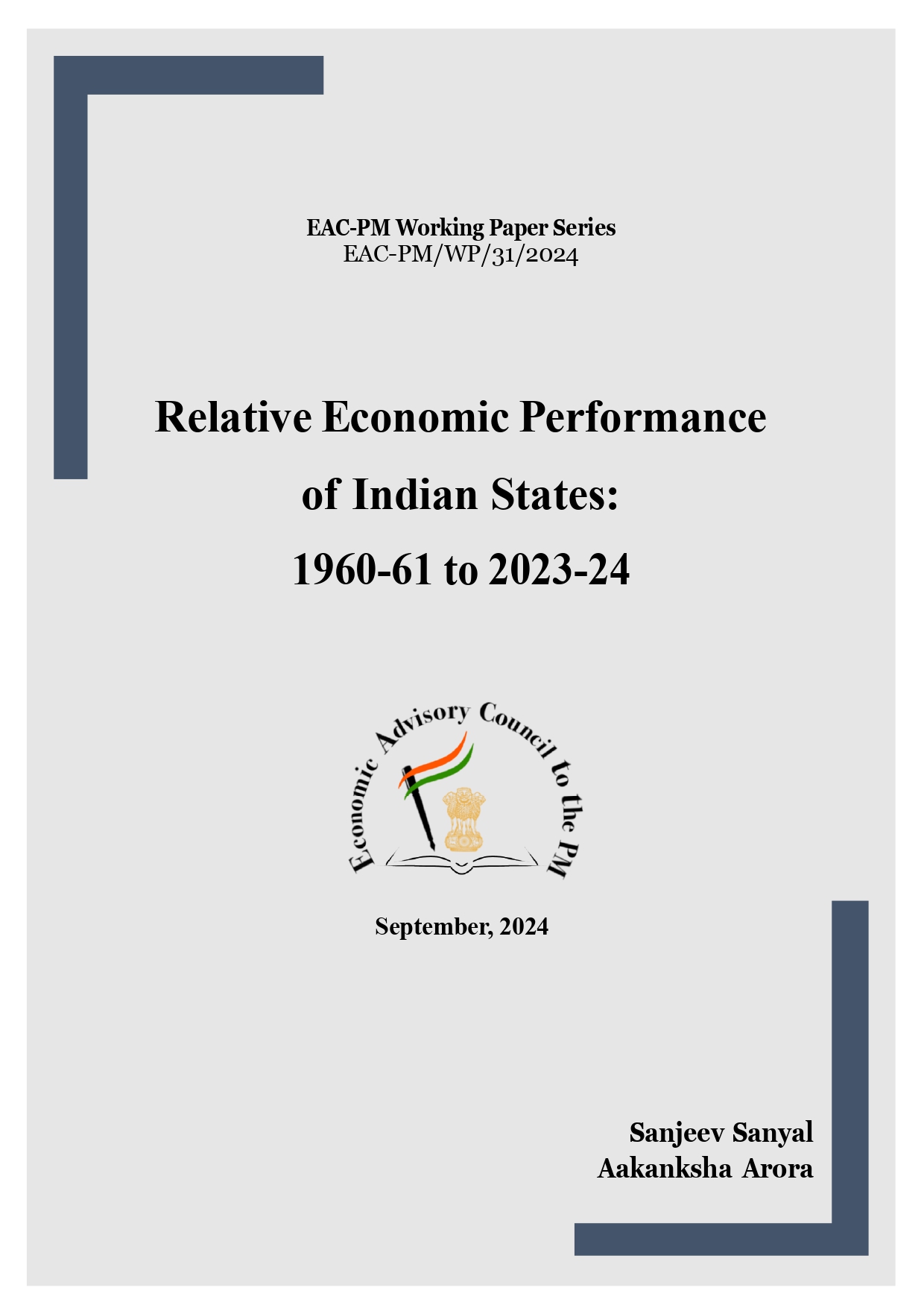
Relative Economic Performance of Indian States
Most papers regarding economic performance of states deal with the real and nominal growth rates
of states over time. In this paper, we have focused exclusively on the relative performance of states,
measured using two indicators- (1) Share in India’s GDP and (2) Relative per capita income.The state’s share in India’s GDP is calculated by dividing the Gross State Domestic Product
(GSDP) of the state by the sum of GSDP of all states. Relative per capita income is calculated
as the ratio of the per capita Net State Domestic Product (NSDP) of the state as a percentage
of the all-India per capita Net National Product (or Net National Income in some years). An
important point to remember here is that per capita NSDP means that it does not include
remittances which may be important for states like Kerala, Bihar and Uttar Pradesh. We have
made adjustments where possible for state bifurcations and other factors to ensure comparability.
All data used are in current prices. The analysis spans a long period, from 1960-61 to 2023
24, providing insights into how individual states have performed in response to changes in national
and state-specific policies.
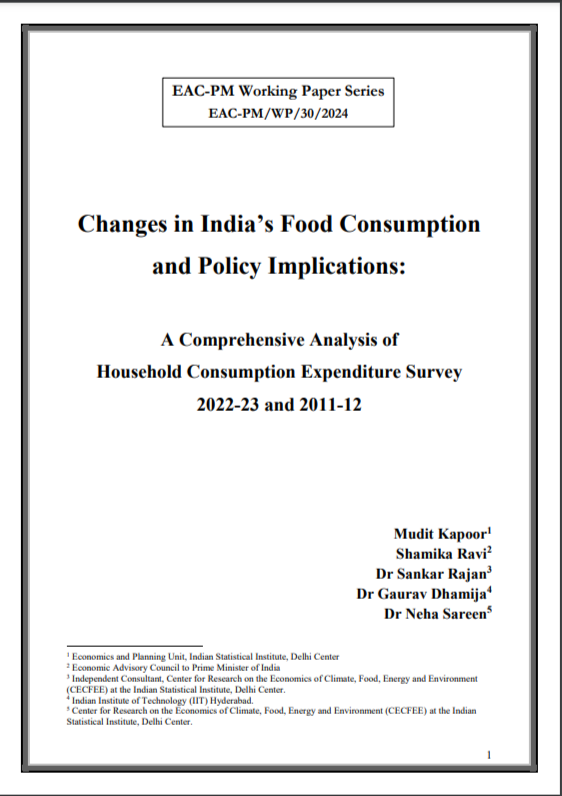
Changes in India’s Food Consumption and Policy Implications
Significant changes are unfolding in India’s food consumption pattern, with serious
implications for our national agriculture, health, nutrition, and overall welfare policies that
target poorer sections of society. The changing consumption basket of Indians will also impact
the calculation of the Consumer Price Index in the future. A comprehensive analysis of the
Household Consumption Expenditure Survey 2022–23 and comparisons with 2011–12 reveal
striking changes in food consumption patterns over the last ten years, with potential
implications for health outcomes. This comprehensive study is presented in four chapters.
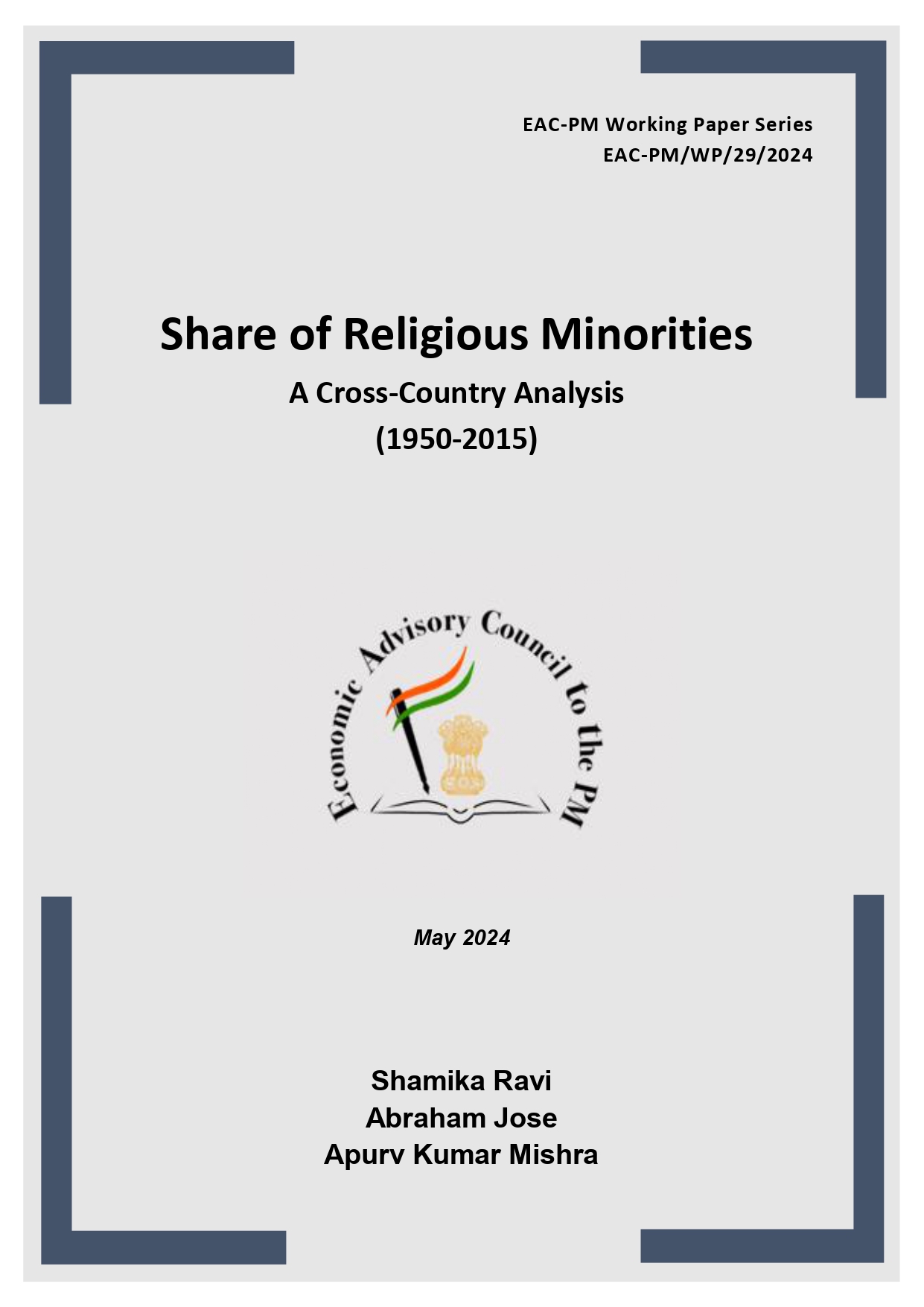
Share of Religious Minorities A Cross-Country Analysis
The global economy is in a phase of churn and being closely watched and analyzed by economists and policymakers everywhere. There are, however, major demographic transitions that are also underway across countries – but mostly going unnoticed by analysts ranging from economy watchers to democracy-watchers. These silent transformations have the power to reshape societies and states. Ironically, of the four megatrends whose cascading effects are bringing about these transformations -demography, technology, economy and climate change3- the forecasts for demography are the most predictable. Shifting demographic trends are aggravating economic disparity within and between countries, straining governance and fuelling friction between states and people.
View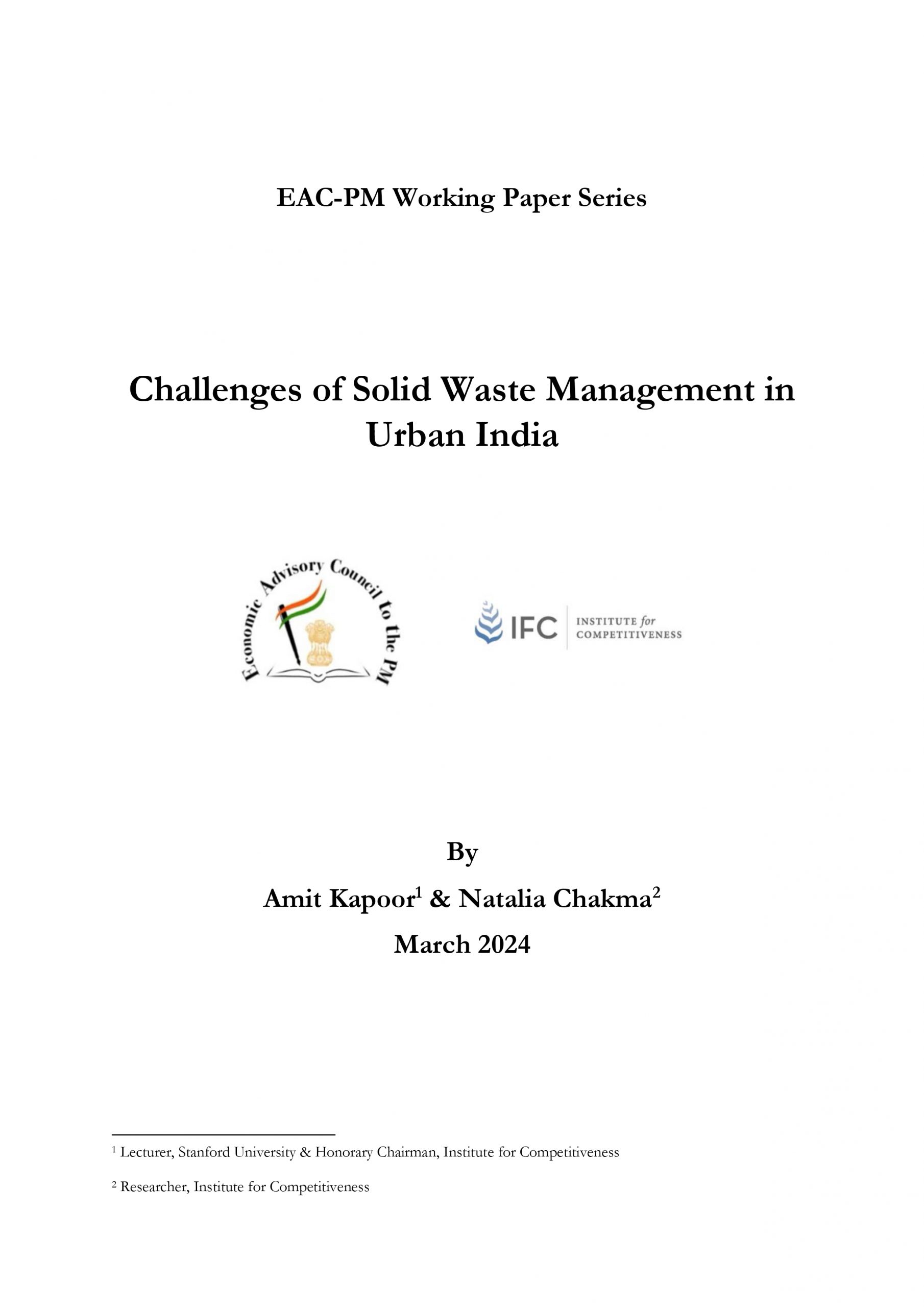
Challenges of Solid Waste Management in Urban India
Waste generation increases as a result of rapid urbanisation and economic growth, placing tremendous pressure on the current management systems. Effective waste management has remained difficult despite the rapid economic expansion, indicating a gap in development strategies. The paper presents an in-depth study and analysis of solid waste management, highlighting the dual nature of solid waste as a challenge and an opportunity for Indian cities. It further emphasises that immediate sustainable waste management solutions are needed to solve environmental issues and achieve economic potential. Constructive approaches that involve public engagement and take geographical differences into account are essential. Through the implementation of sustainable practices such as waste disposal, reduction, reuse, and waste recovery, communities can turn waste from an issue into an asset that benefits the environment, the economy, and public health in urban areas. Although various regulations and laws have been introduced to improve waste management, such as the shift from centralised (2000) to decentralised (2016) approaches, challenges persist during the implementation process of these regulations. A shift towards responsible practices, along with investment in infrastructure, finance, technology, and awareness, are necessary to alleviate the challenges and achieve effective waste management.
View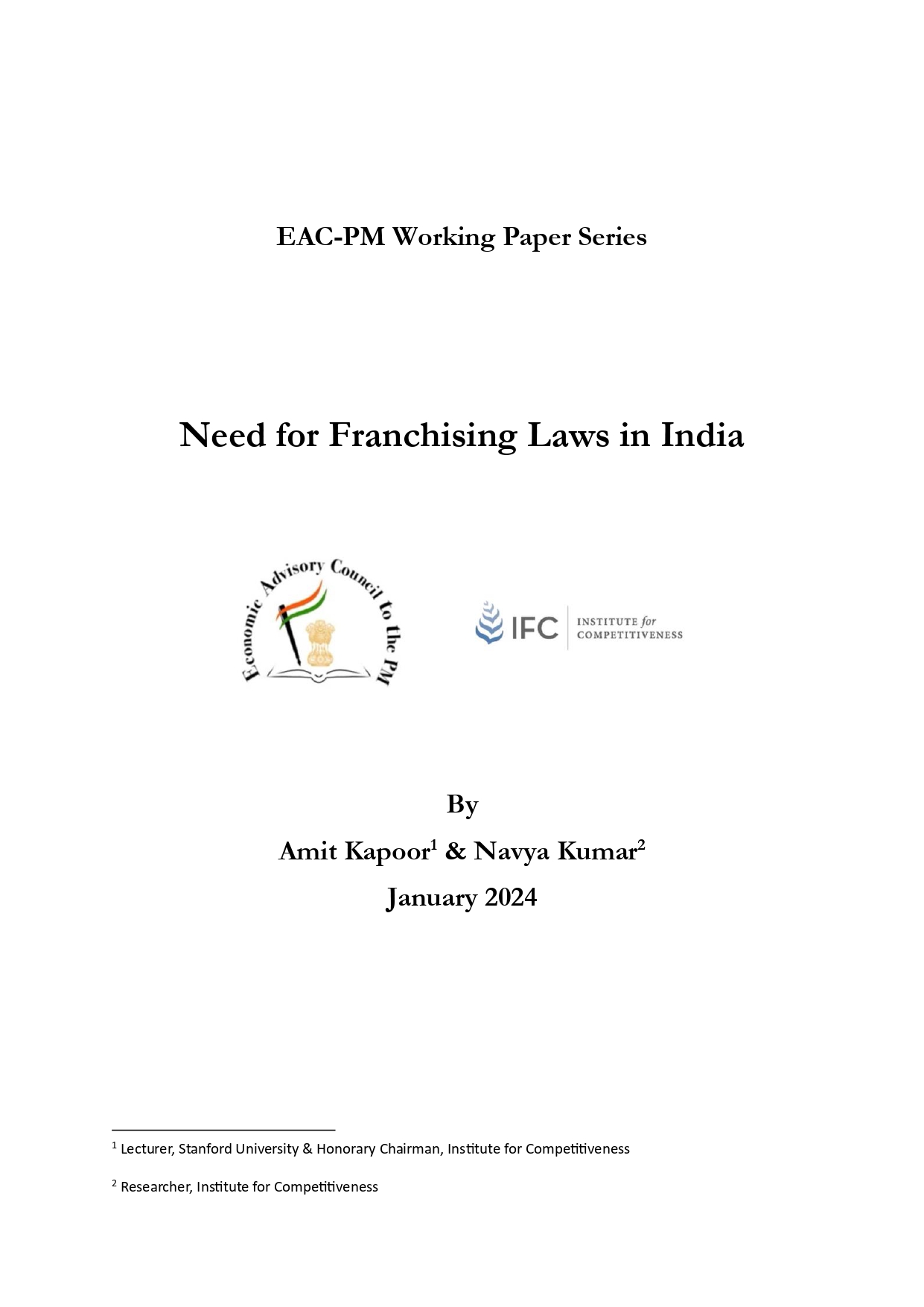
Need for Franchising Laws in India
The term ‘Franchise’ is not explicitly defined within the Indian Legal framework. However, its interpretation can be deduced from the Finance Act of 1999, which stipulates that a ‘Franchise’ refers to an agreement granting the authorized entity the right to sell, manufacture goods, provide services, or engage in business activities associated with the Franchisor (Shrivastava & Jacob, 2023). India’s growing middle class and rising entrepreneurial culture make the nation fertile ground for emergent franchising opportunities. However, certain lacunas need to be addressed before realizing this ambition, notably the lack of franchise-specific laws. In contrast to many other countries – the United States, where the Federal Trade Commission (FTC) oversees franchising through the Franchise Rule, the European Union, where member states regulate franchising in their national laws, Australia, which has specific disclosure laws pertaining to franchises and the Australian Competition and Consumer Commission (ACCC) that regulates the code – India does not possess a centralized regulatory body or comprehensive franchise law at the national level. The landscape of franchisor-franchisee relationships is marked by diverse arrangements and contracts, giving rise to various forms of exploitation and disputes, particularly impacting smaller local vendors serving as franchisees due to the inherent information asymmetry. The franchisor, as the source of the business opportunity, has access to enhanced knowledge about the business as well as typically exercises greater control over the terms of the franchise contract, elucidating skewed power dynamics within the industry structure.
View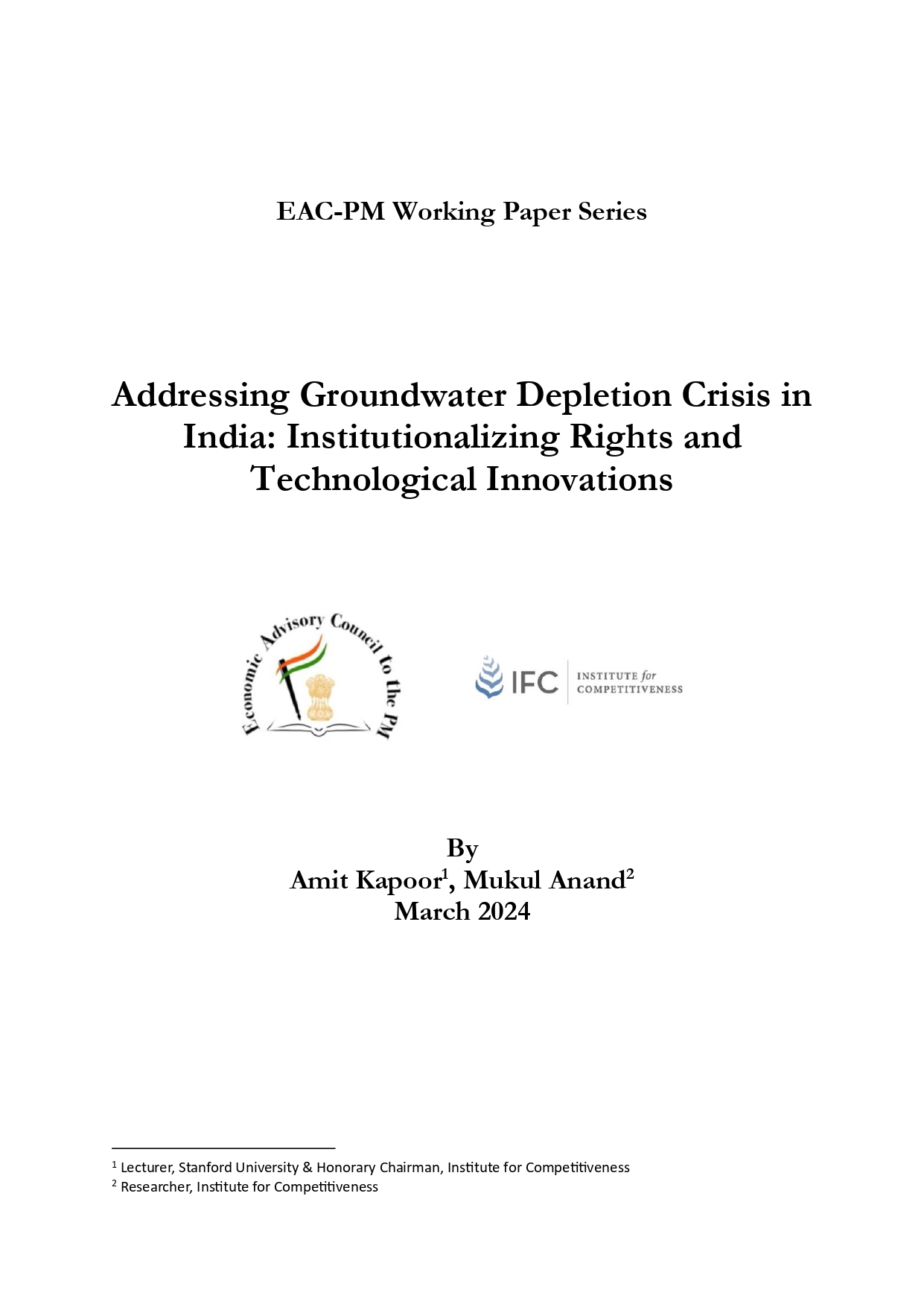
Addressing Groundwater Depletion Crisis in India: Institutionalizing Rights and Technological Innovations
Groundwater, a vital resource essential for sustaining agriculture, rural water supply, and urban consumption, is rapidly depleting in India. With overreliance on groundwater, constituting 62% of irrigation and 85% of rural water supply, India faces an imminent threat exacerbated by population growth, industrial demands, and urbanisation. A University of Michigan study projects a tripling of groundwater depletion rates by 2080, primarily driven by climate-induced intensified withdrawal for irrigation. It highlights the oversight in earlier projections and calls for urgent policy interventions to mitigate this crisis. Proposed measures include rationing power supply, metering electricity usage, regional water resource development, and incentivising farmers for groundwater recharge. The study places India within the global context of groundwater depletion, identifying it as one of the six environmental tipping points. Issues such as declining water quality, aquifer depletion, and land subsidence underscore governance challenges in India, necessitating sustainable management practices. This paper unfolds in three chapters, exploring the problem’s causes and impacts, policy measures from various states and globally, and solutions grounded in community rights and artificial recharge. It emphasises the imperative role of institutionalisation, drawing insights from global examples, particularly Latin America, South Africa, Germany, and Australia. The synthesis of global and Indian experiences highlights the need for a holistic approach, starting with institutionalising community rights and complementing it with technological interventions for sustainable groundwater management.
View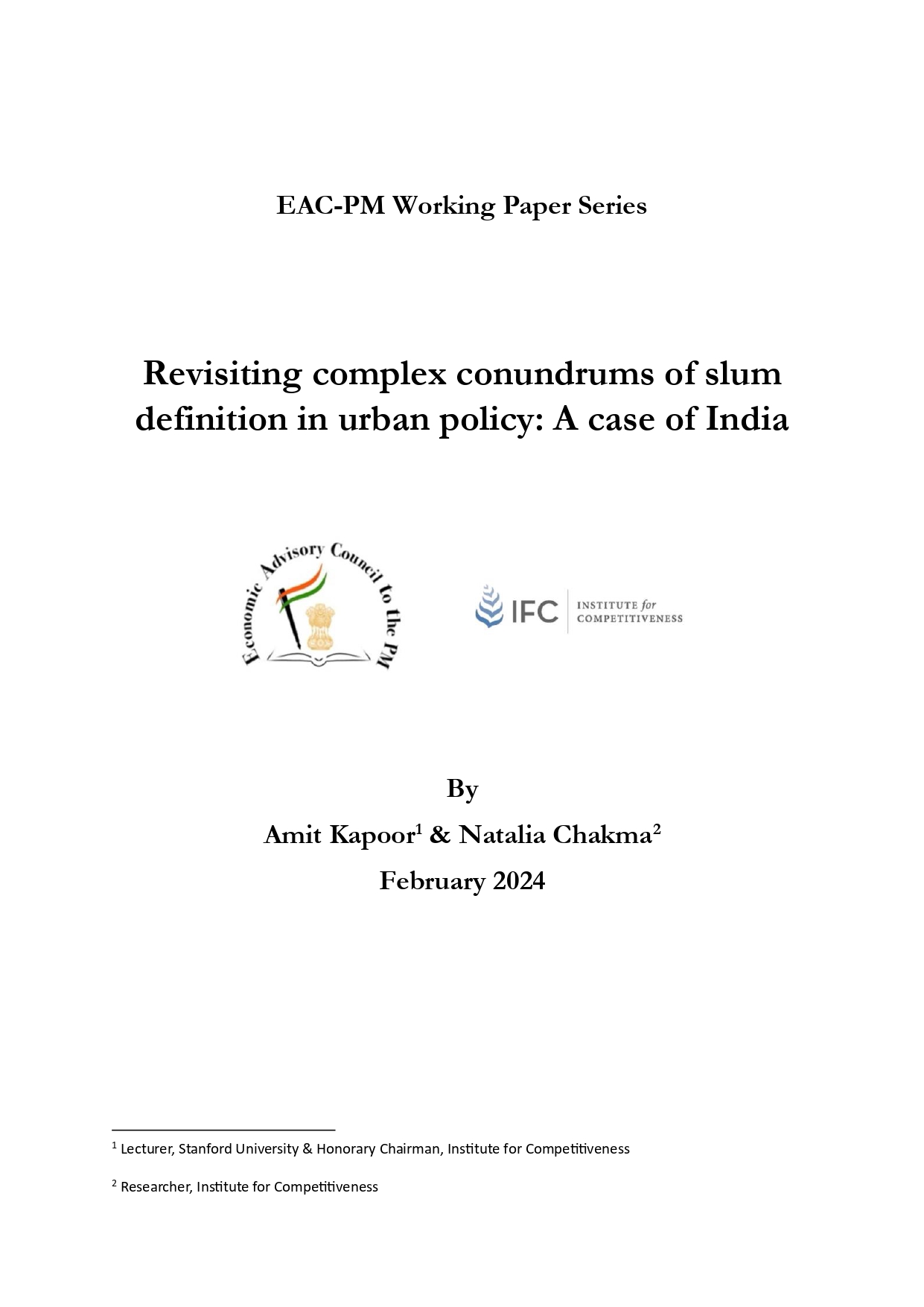
Revisiting complex conundrums of slum definition in urban policy: A case of India
Slums, often termed informal settlements, become the primary housing solution for low-income urban dwellers due to fierce competition for land and profits, leaving them with limited choices owing to their meagre incomes and lack of alternative housing opportunities. The paper delves into the global prevalence of slums, emphasising the significance of accommodating the urban poor, particularly in India. It explores the challenges faced by marginalised populations in planned cities and the critical need for precisely defining slums. The origin of the term ‘slum’ is traced, highlighting its evolving interpretation. The impact of rapid urbanisation on slum growth is analysed, emphasising the complex interplay of economic, social, and policy factors. The definition of slums is critically examined, along with the disparities and limitations in current categorisations. The paper highlights the evolution of slum policies in India, focusing on the role of definitions in shaping these policies, spanning from initial eradication strategies to current in-situ redevelopment initiatives, while examining the impact of evolving theories, the engagement of NGOs, and the persistent challenges in implementation. It scrutinises recent policies like the Pradhan Mantri Awas Yojana, featuring issues hindering effective slum improvement. Overall, the paper stresses the crucial link between clear slum definitions and successful urban poverty alleviation strategies.
View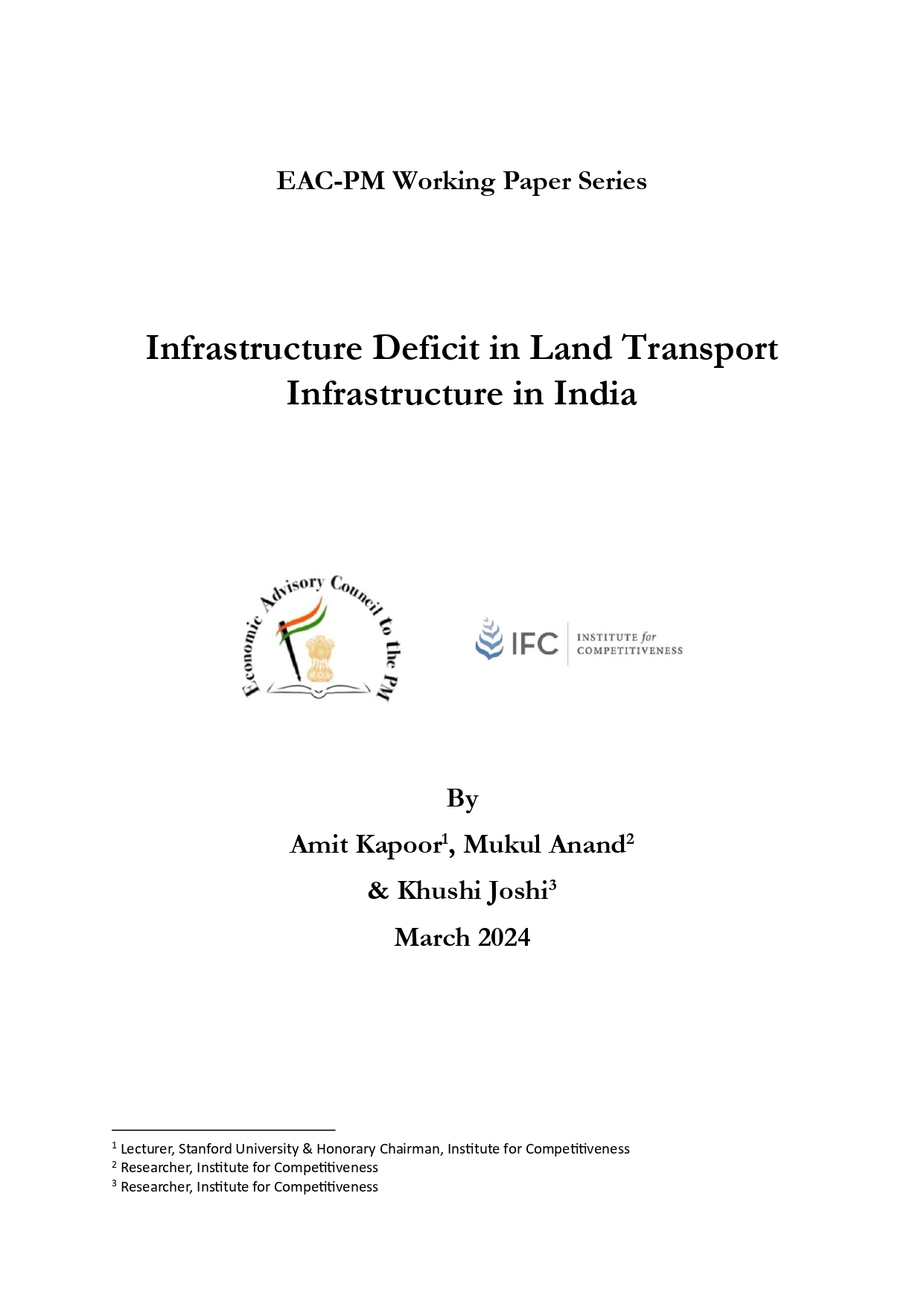
Infrastructure Deficit in Land Transport Infrastructure in India
Over the past 75 years since Independence, India has made consistent strides in infrastructure development across various sectors such as transportation, housing, commercial development, telecom, and sanitation. Recognising infrastructure as a key driver of socioeconomic progress, the government has invested significantly in what is termed as ‘social overhead capital’, aiming to extend development to even the remotest corners of the nation. This strategic approach has involved dedicated budget allocations, cross-subsidisation of revenue-generating infrastructure, and focused program delivery, resulting in expanded physical transportation networks, enhanced connectivity, localised service provision, and increased digital penetration.
View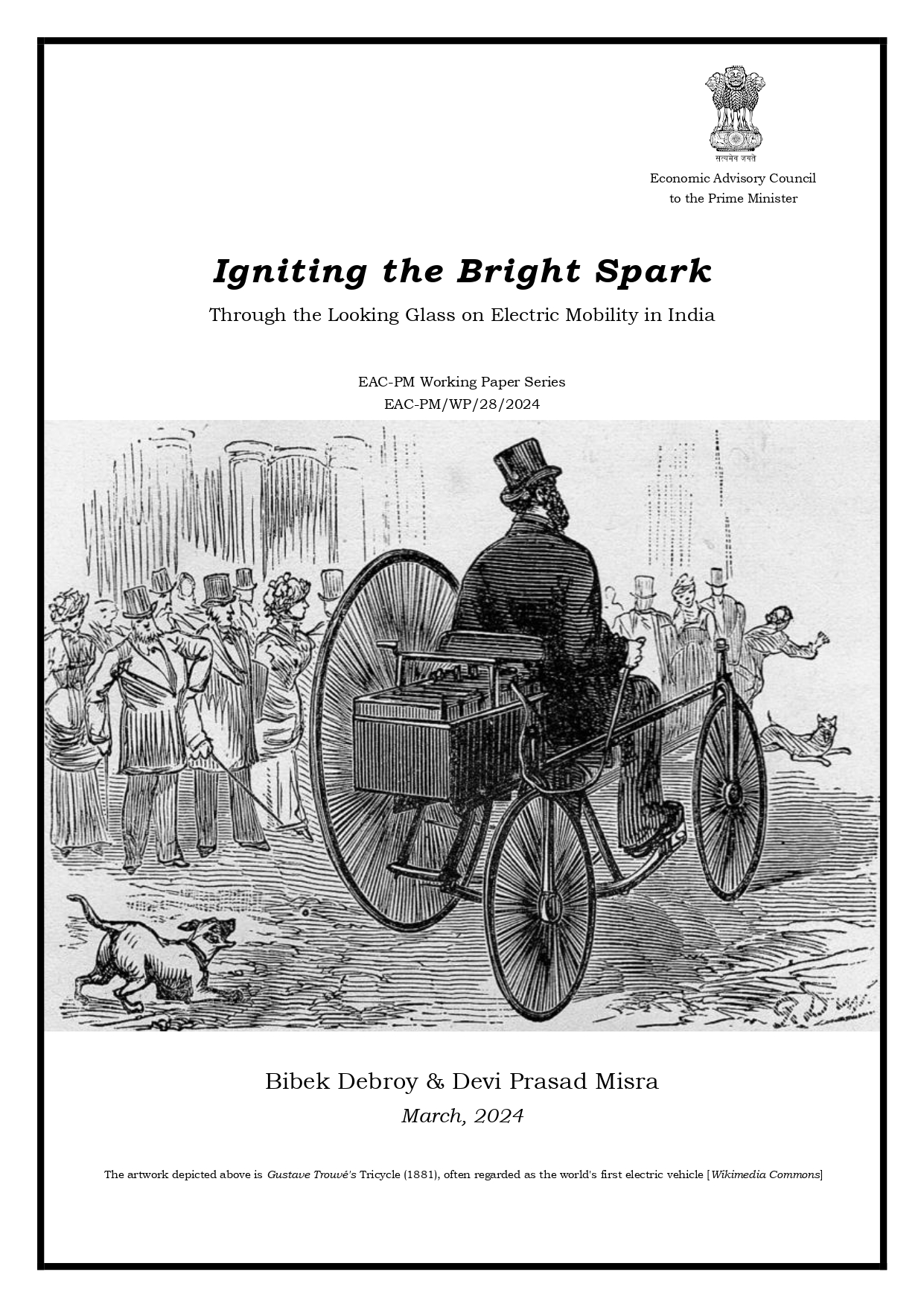
Igniting the Bright Spark Through the Looking Glass on Electric Mobility in India
Compulsions of climate change commitments, caprices in oil prices coupled with a rapid acceleration of battery technologies have together led to a sharp increase in electric mobility worldwide. In the Indian context, a slew of measures – on the demand side as well as on the supply side have been announced from time to time. However, the results have been mixed.
View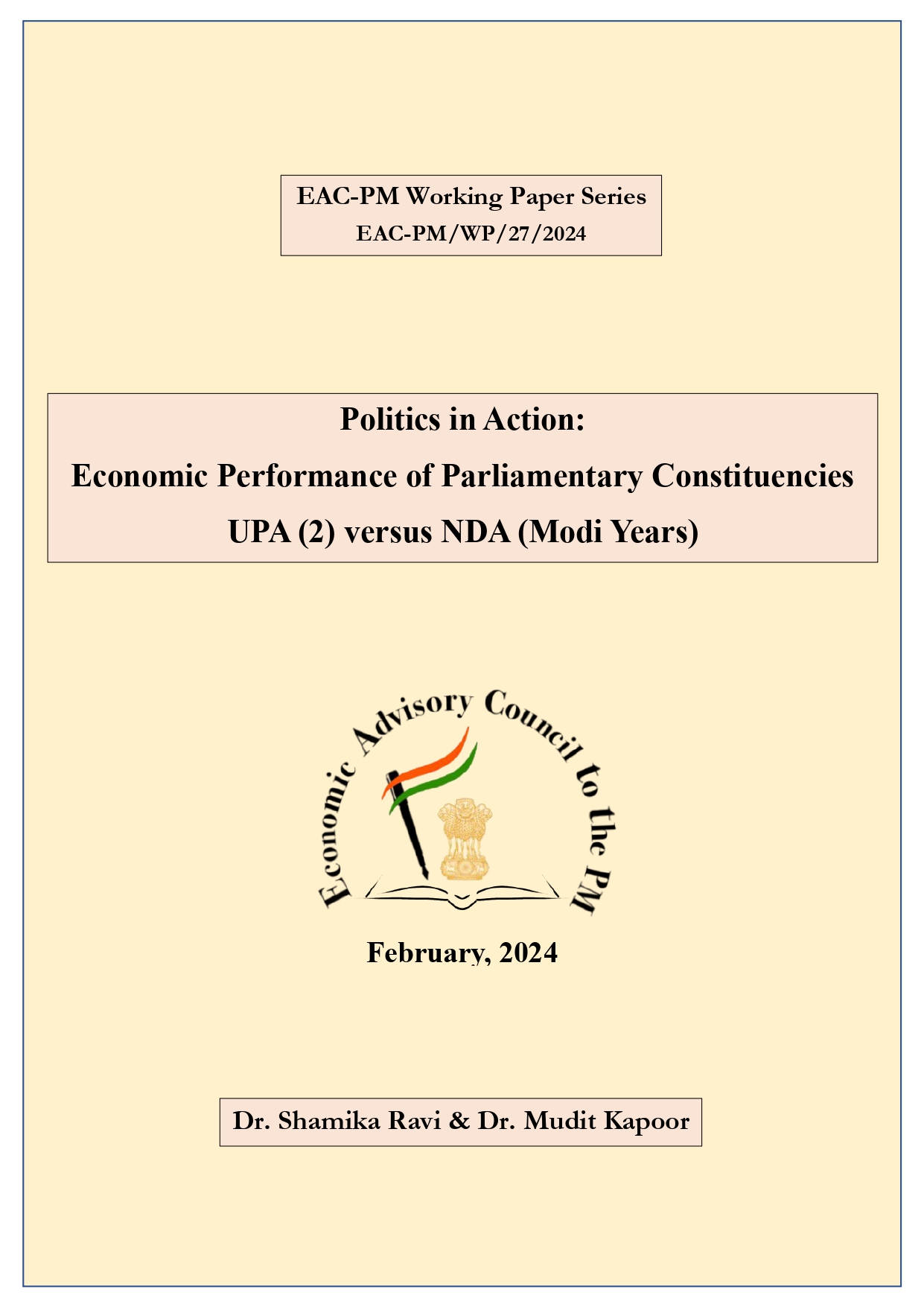
Economic Performance of Parliamentary Constituencies UPA (2) versus NDA (Modi Years)
In a vibrant democracy, assessing the economic performance under different political regimes is crucial. Typically, the debate is limited to comparing growth rates or poverty reduction at the macro level. However, for a more meaningful analysis of politics in action,
View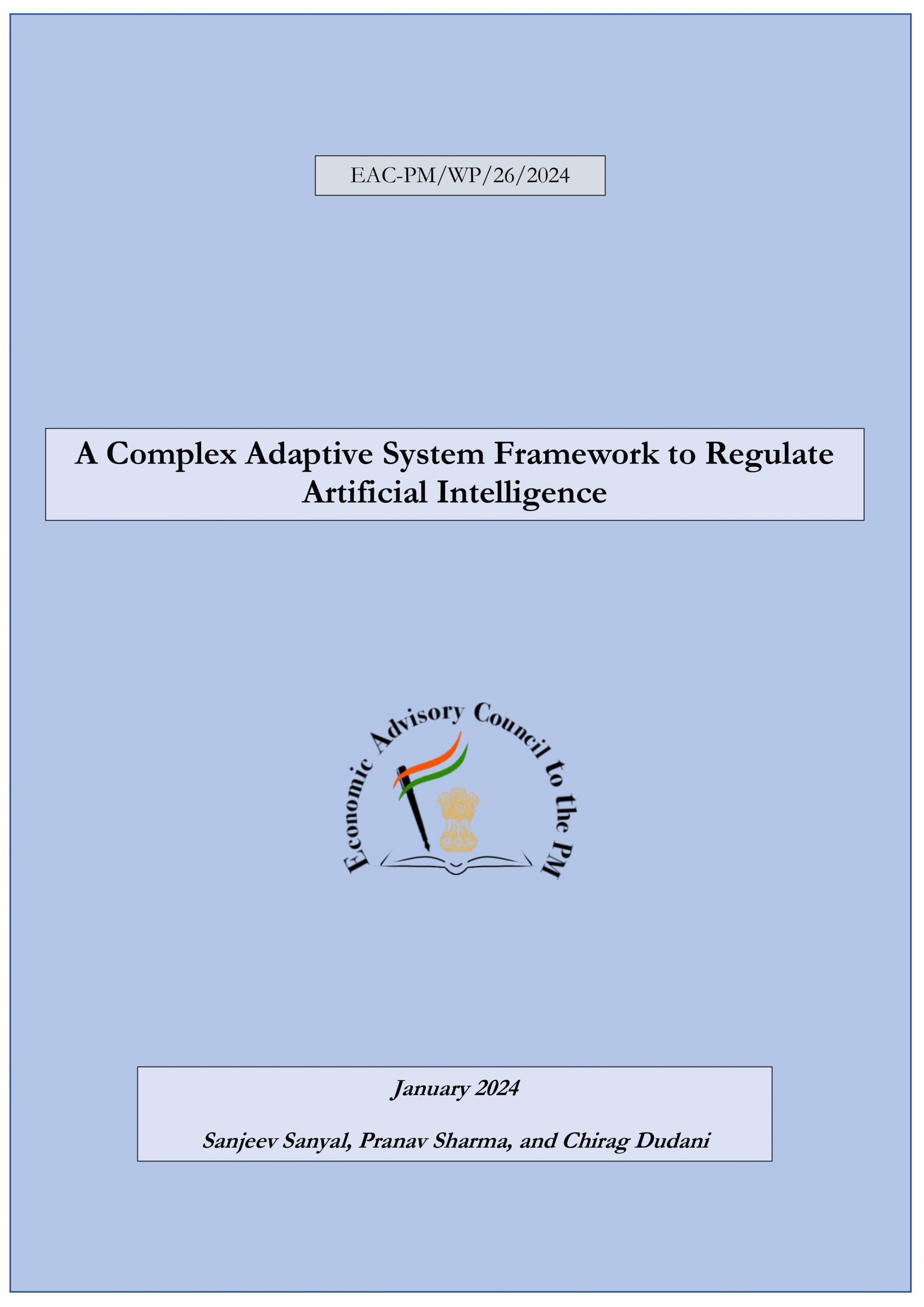
A Complex Adaptive System Framework to Regulate Artificial Intelligence
The field of Artificial Intelligence (AI) has been making significant strides, with advancements in computer vision, language processing, robotics, and many other emergent areas. This rapid development, however, has raised substantial concerns about the risks associated with uncontrolled AI propagation.
View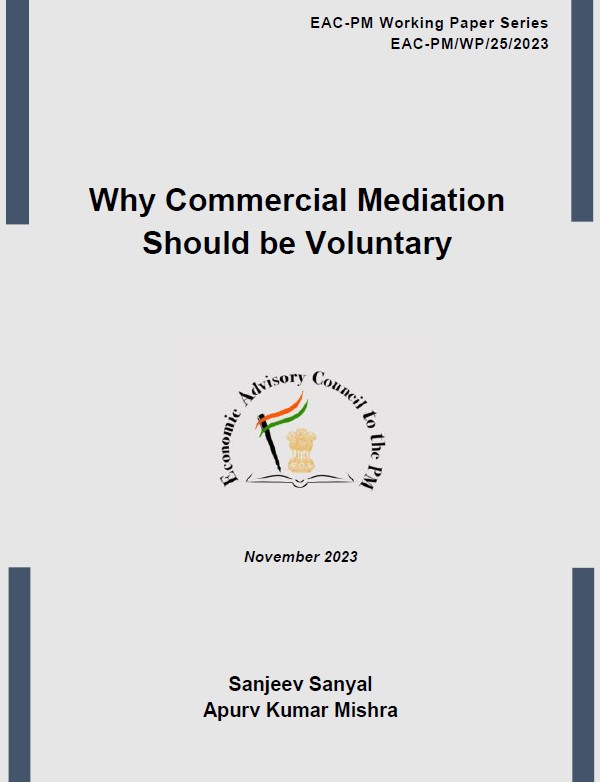
Why Commercial Mediation Should be Voluntary
For the mediation system to be effective, it must earn its place in the dispute-resolution ecosystem by its performance and not by a mandate. Hence, Section 12A of the Commercial Courts Act, 2015, must be amended to make pre-litigation mediation for commercial cases voluntary.
View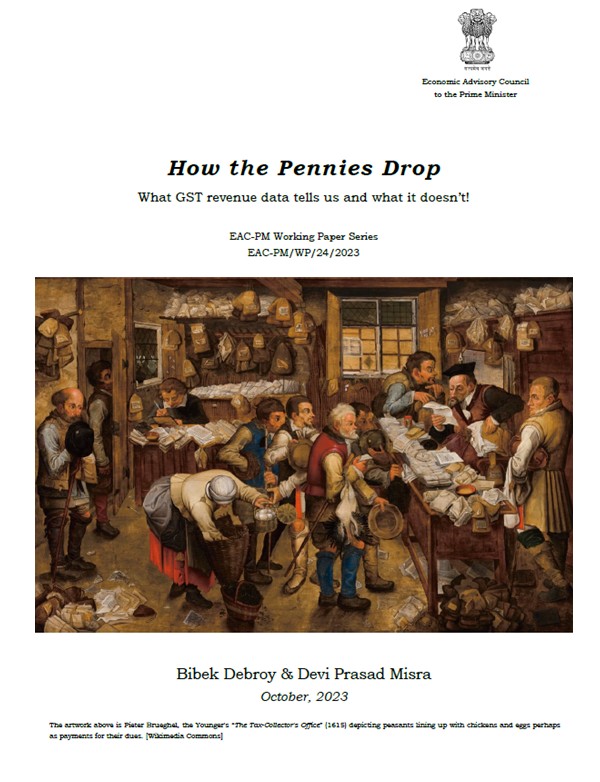
How the Pennies Drop
This paper delves into the trends of GST collections to evaluate the efficacy of the reform to generate revenue. Subsequently, an attempt is made to answer the questions – what drives revenue growth and whether the collections; collection efficiencies and buoyancy of collections are better under GST as compared to the pre-GST period. This is done by examining the GST collections while controlling for extraneous factors such as inflation.
View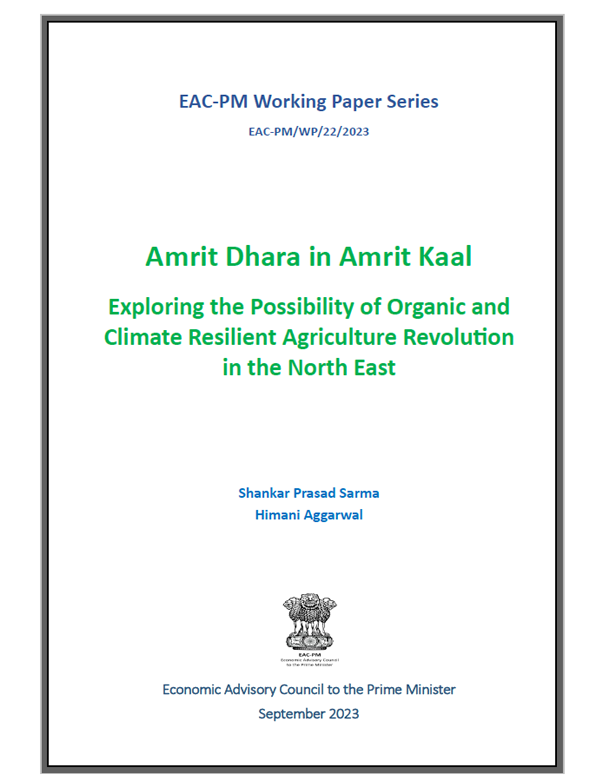
Exploring the Possibility of Organic and Climate Resilient Agriculture Revolution in the North East
The vision of the Hon’ble Prime Minister for the North Eastern Region of Bharat can be developed as the Organic agriculture hub of not only India but of the world, which would double up as the reservoir of knowledge and practice of ancient, climate resilient crops and seeds.
View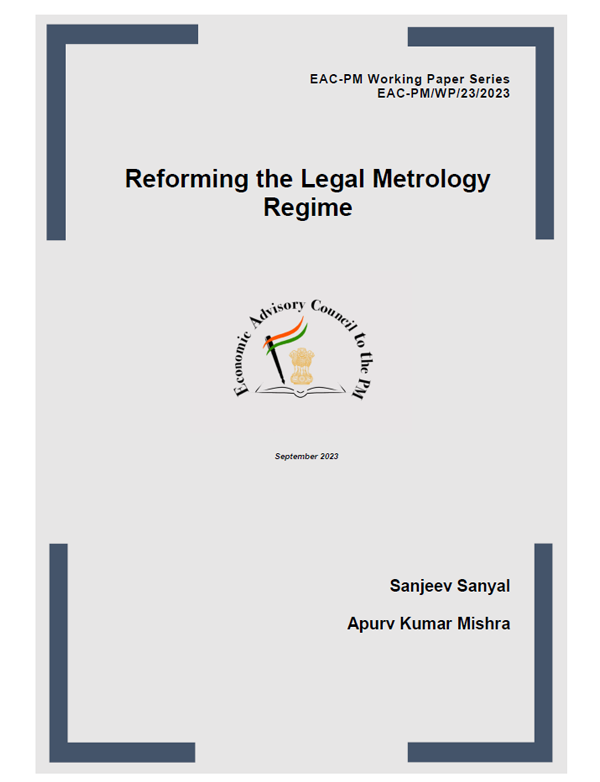
Reforming the Legal Metrology Regime
The Legal Metrology Act, 2009 (“2009 Act”) which establishes and enforces the standard of weights, measures and labels used in the commercial sector, has long been subjected to criticism for harsh punitive measures and complexity of its labeling regulations.
View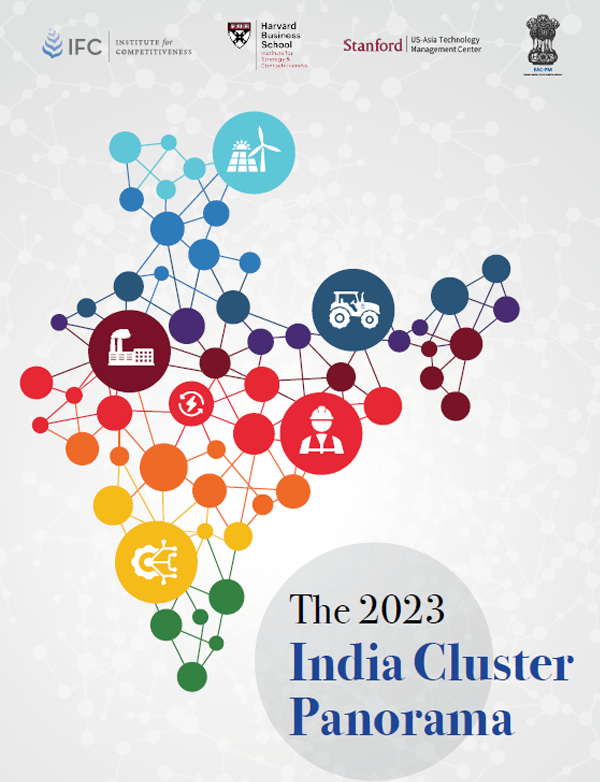
The 2023 India Cluster Panorama
This research paper delves into the concept of competitiveness and clusters, drawing inspiration from the seminal work of Michael Porter and guided by the empirical research conducted by Dr. Christian Ketels across various countries.
View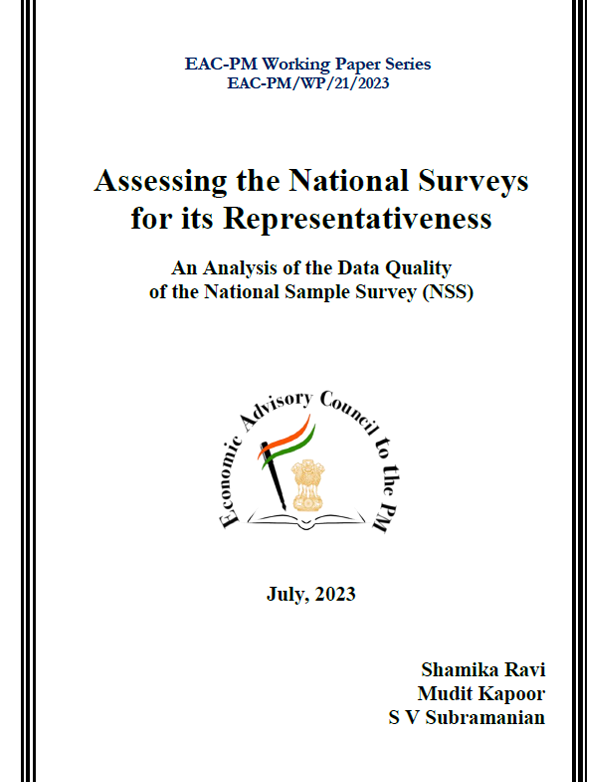
Assessing the National Surveys for its Representativeness
This paper is a quantitative analysis of the data quality of the National Sample Survey (NSS) in terms of three estimates.
View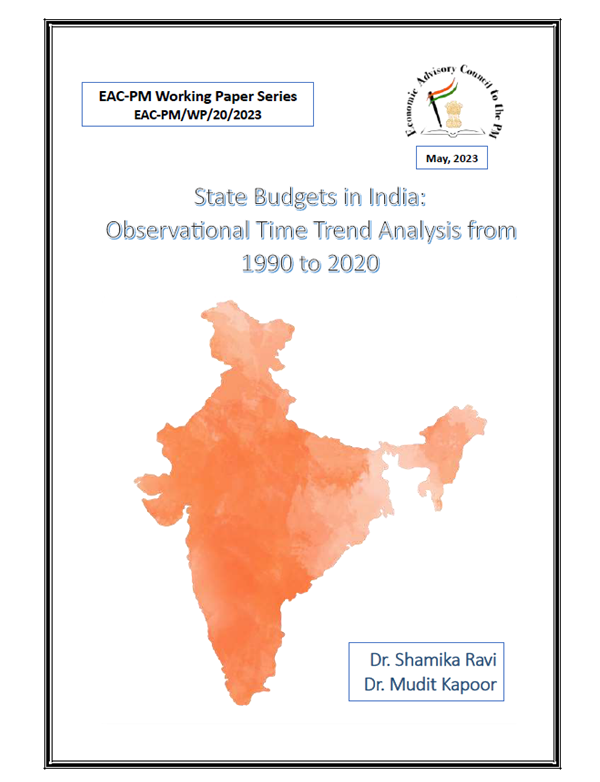
State Budgets in India: Observational Time Trend Analysis
State budgets reflect the state government’s social and economic priorities beyond the political rhetoric in the media. Analyzing time trends and the composition of the revenue, expenditure, and capital outlay can provide valuable insights into how these priorities have evolved for different states in the last thirty years.
View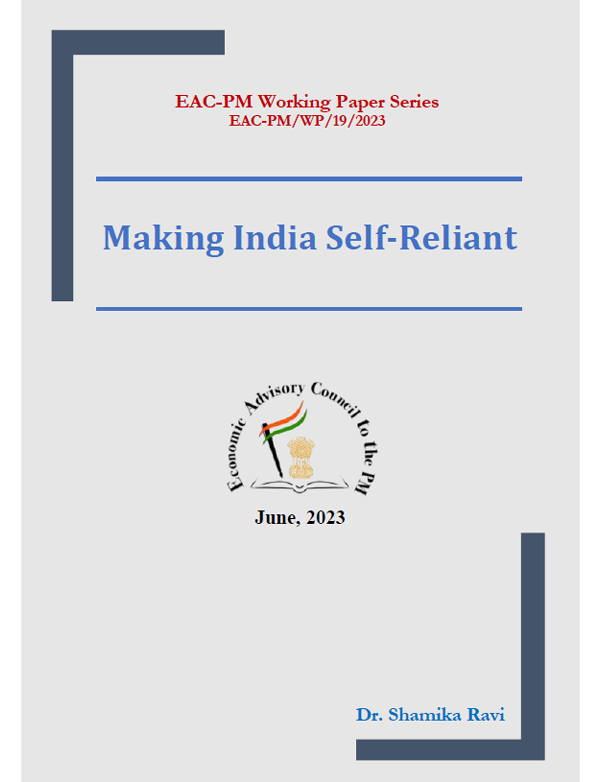
Making India Self-Reliant
India needs an alternative and a self-reliant development model “with Indian characteristics.” The Indian model of growth and development should encourage trade liberalization, but safety nets should be in place to address displacement issues.
View
India’s G20 Presidency – Emerging Issues
With India’s G20 presidency, it is an opportunie moment to delve into economic, political and technological aspects that will define the future of G20 and India’s potential to influence the global agenda.
View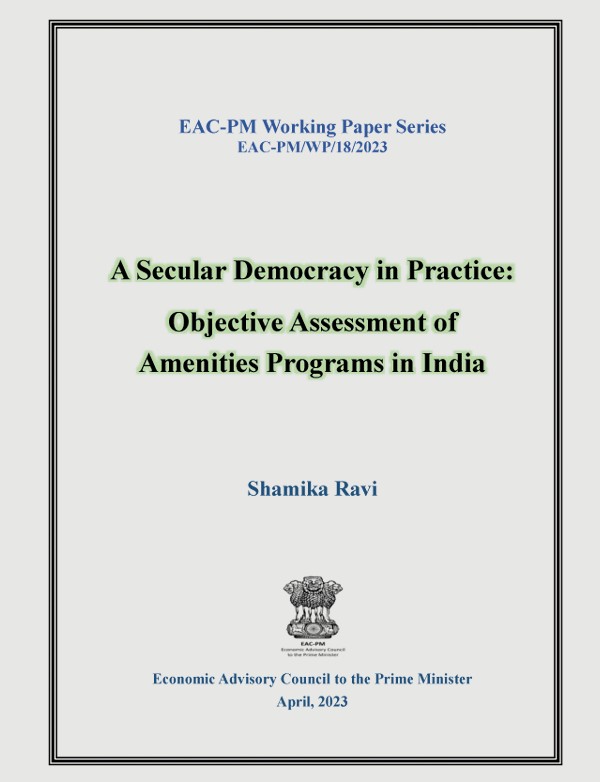
A Secular Democracy in Practice: Objective Assessment of Amenities Programs in India
Our results indicate that the government is responsive to the needs of the marginalized section of society irrespective of religion, caste, or place of residence, which is an alternative and more robust indicator of strengthening democracy in India.
View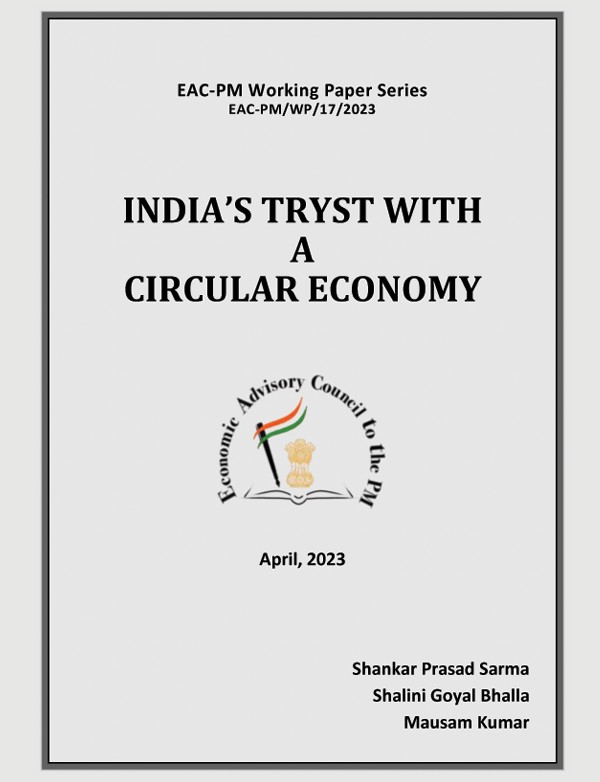
India’s Tryst with a Circular Economy
The concept of a circular economy has gained immense popularity in recent times, as it provides a sustainable solution to the current linear economic model. In a circular economy, resources are kept in use for as long as possible, waste is minimized, and products are designed to be reused or recycled at the end of their life.
View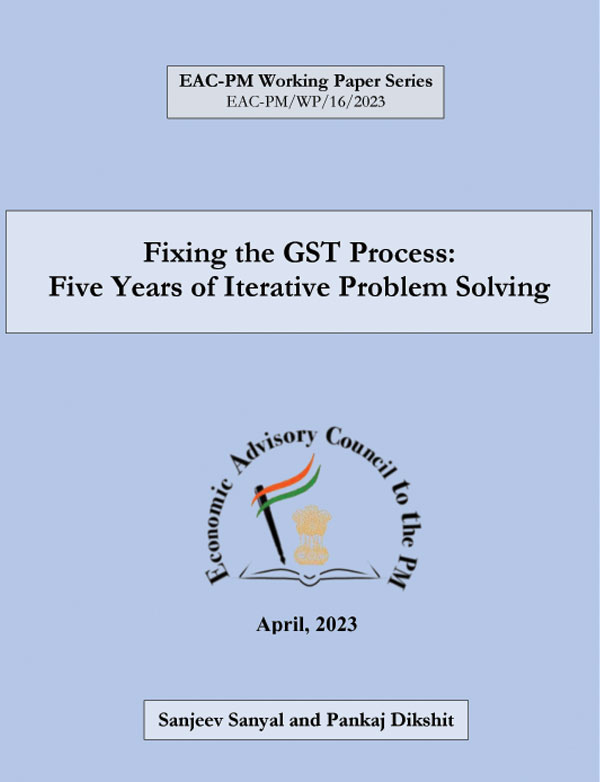
Fixing the GST Process: Five Years of Iterative Problem Solving
The paper, examines the topic from the perspective of process efficiency and the ability of the system to correct by responding to feedback loops. It delves into areas such as customer complaint rates, responsiveness of the Goods and Services Tax Network (GSTN), time taken for redressal, and the technological tools being used to improve interactions with taxpayers.
View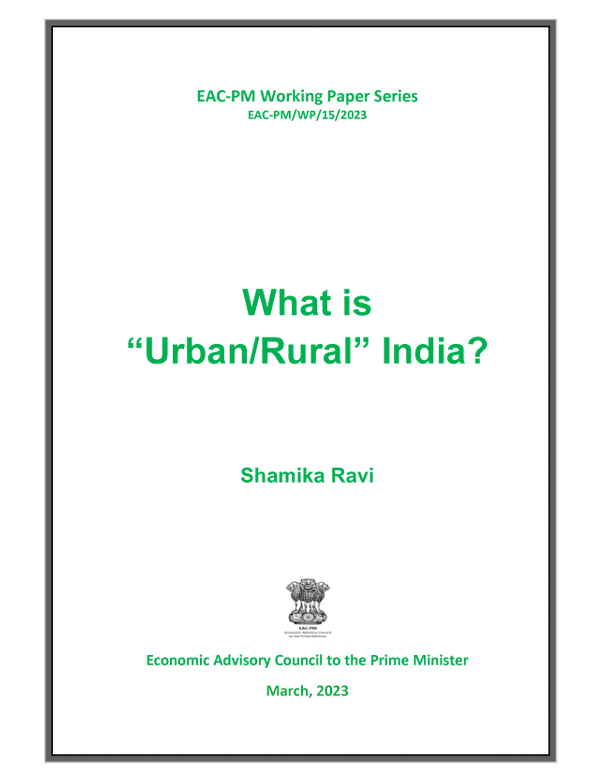
What is “Urban/Rural” India?
The issue of labeling settlements as “urban” and “rural” has important policy implications in India since the label determines the local governance structure (panchayat or urban local body) and the allocation of resources under government schemes. Policymakers often work on the faulty assumption that “rural” is a proxy for “poor” and accordingly spend greater resources on provisioning of public goods in areas defined as “rural”. However, the current classification uses a combination of administrative definition and census criteria which are often inadequate in capturing speed and scale of urbanization in India.
View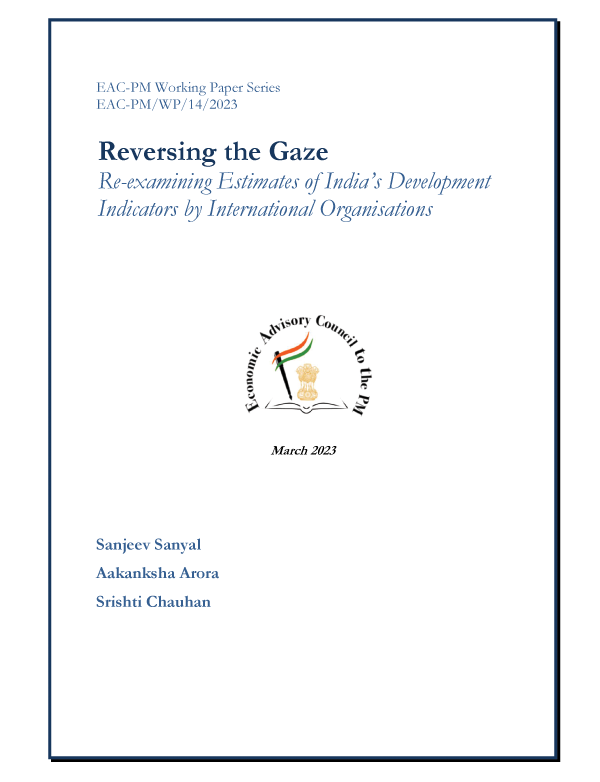
Reversing the Gaze
India’s poor performance on certain development indicators has been a matter of hot debate in recent years. These debates often arise because some socio-economic indicators, as estimated by international agencies, seem to stagnate or even deteriorate despite a rise in per capita income in India. In this paper, we examine whether or not these estimates stand up to scrutiny.
View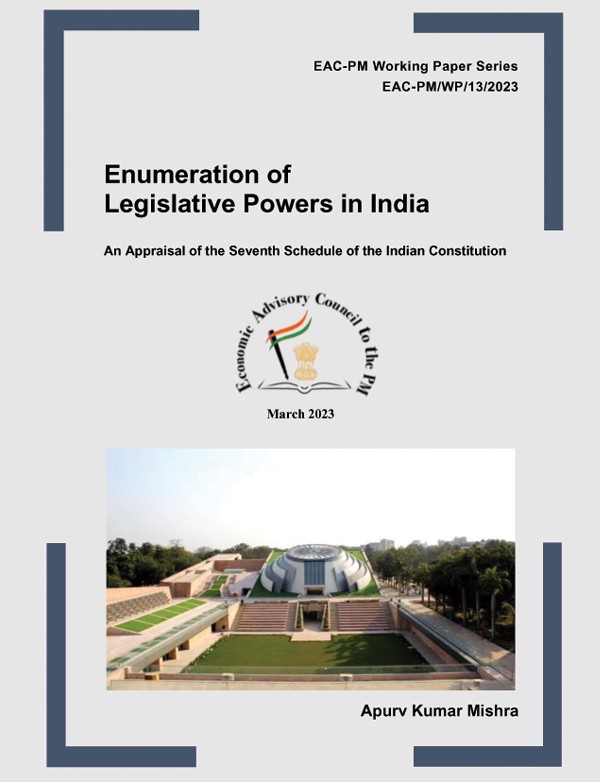
Enumeration of Legislative Powers in India
Enumeration of legislative powers in the seventh schedule of the Indian Constitution has been an important topic in the study of federalism in India. The success of a federation depends on several factors but the accuracy of power distribution is an important one.
View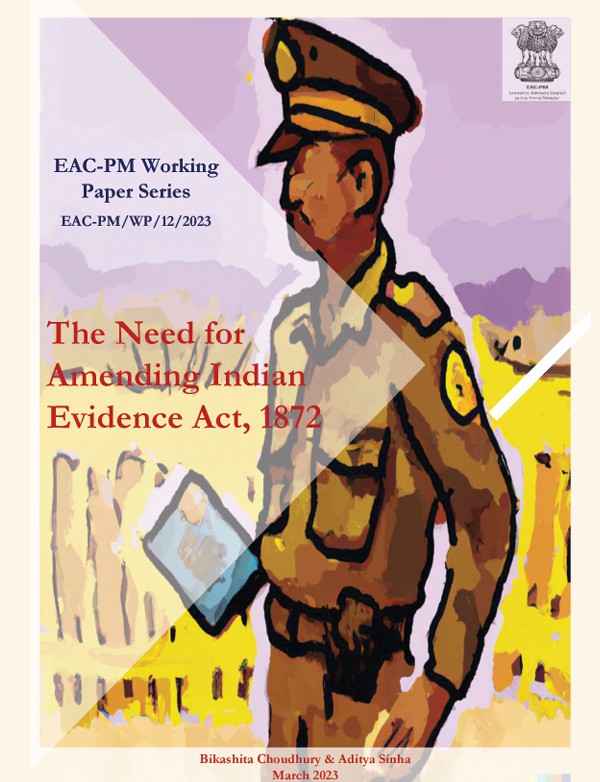
The Need for Amending Indian Evidence Act, 1872
The Indian Evidence Act continues to serve as a stable foundation for resolving disputes and protecting rights, but it is also crucial to consider the need for modernization and the evolution of the legal system better to serve the needs of a rapidly changing society.
View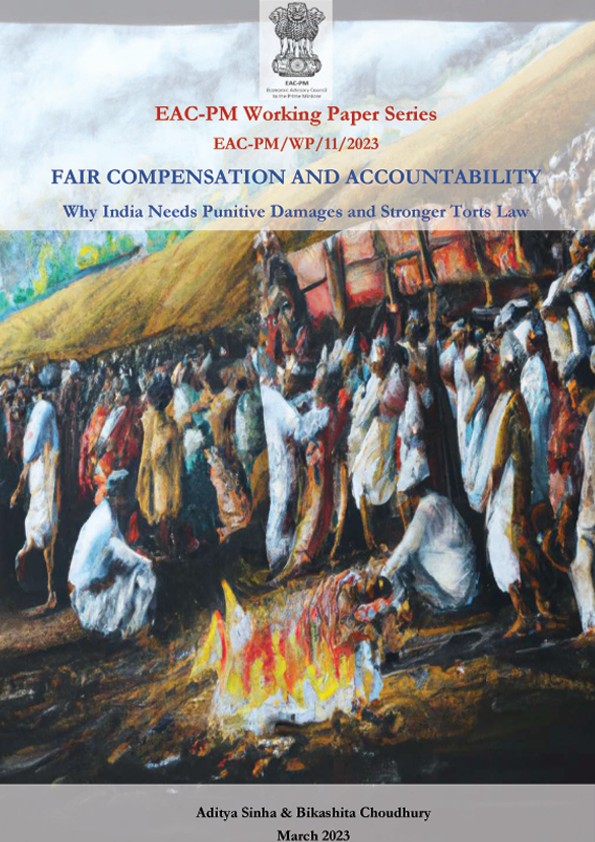
Fair Compensation and Accountability
A codified law of torts would eliminate the need to keep developing new legislation each time a new form of injury or violation occurs.
View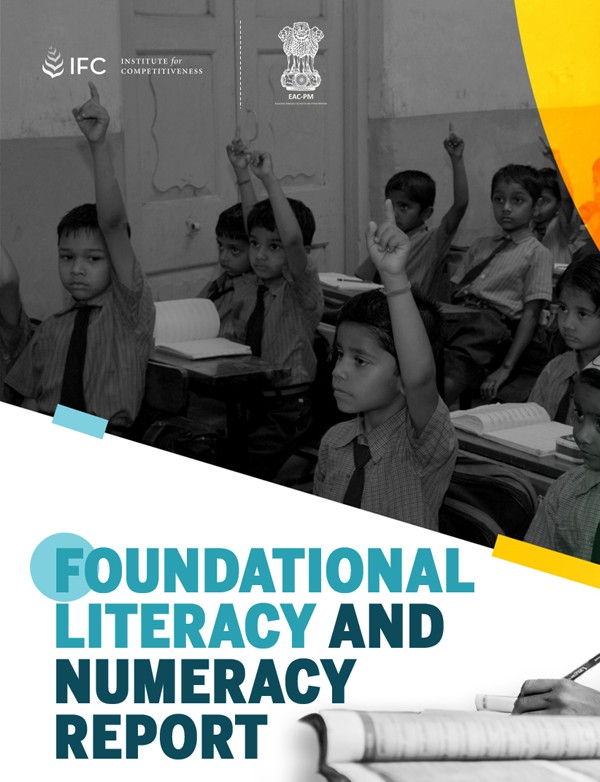
Foundational Literacy And Numeracy Report
Language plays a crucial role in shaping the identity of individuals as it determines how individuals interact with each other in the global world. At the same time, numerous issues related to acquiring literacy skills have become a significant concern.
View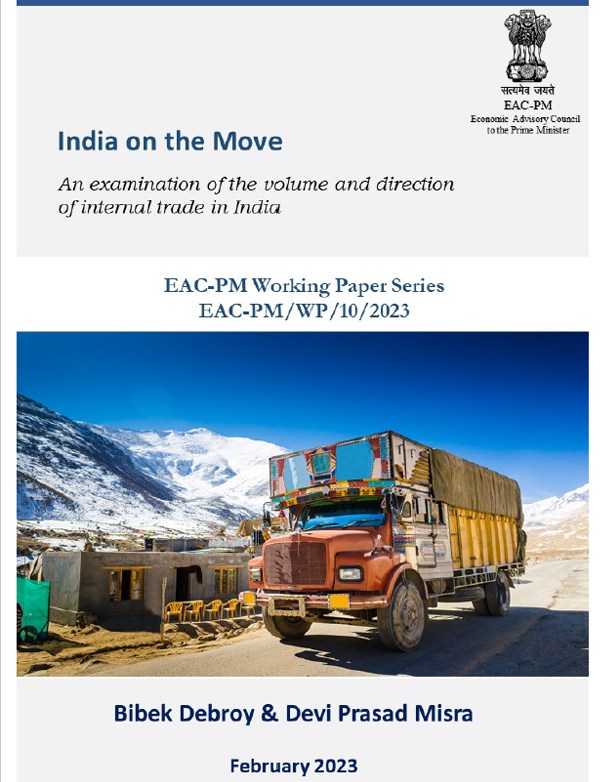
India on the move
An examination of volume and direction of internal trade in India. While there is an almost unanimous view of the benefits of trade – fueling economic growth, supporting a greater number of and better paying employment, raising living standards and enhancing the consumer surplus with affordable goods and services, contemporary research has primarily looked at external trade i.e. trade across national borders. This has led to an under-appreciation of the quantum and the effects of internal trade i.e. trade within national borders. This is of particular significance for larger economies such as India.
View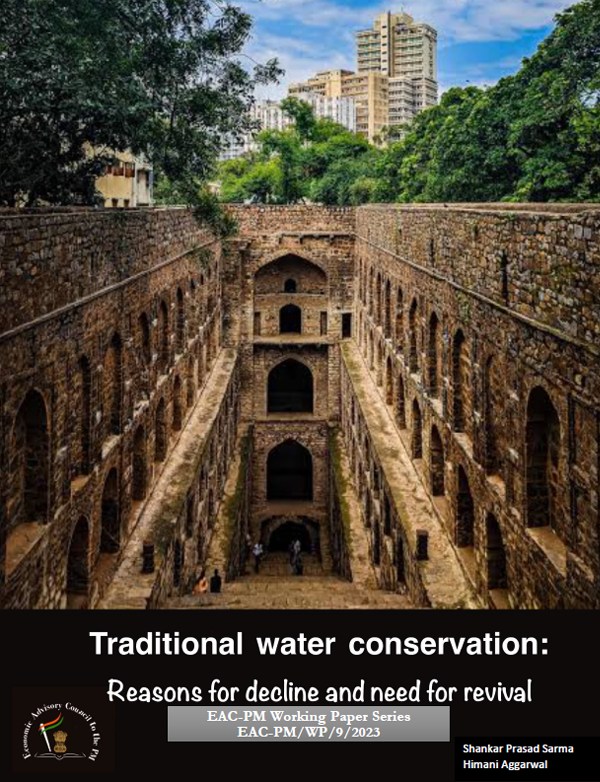
Traditional Water Conservation
A working paper on reasons for decline and need for revival of water conservation by Sankar Prasad Sarma and Himani Aggarwal.
View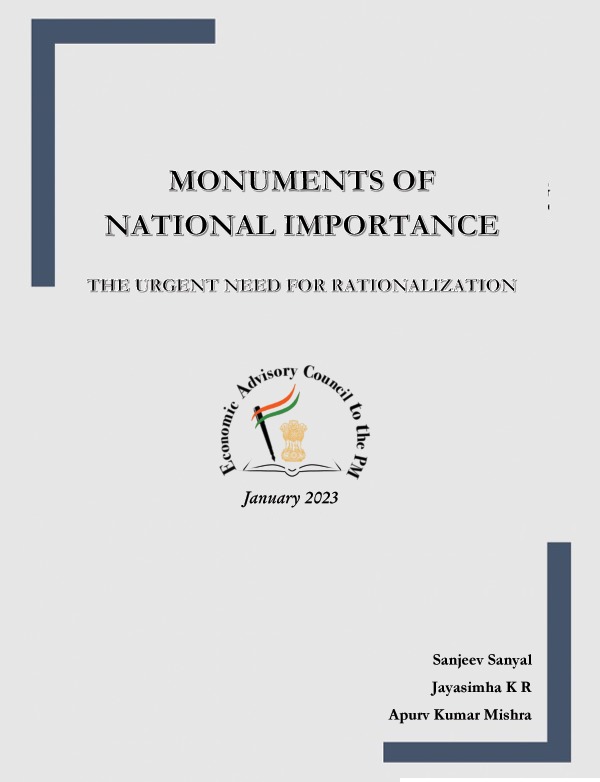
Monuments of National lmportance
There has been almost no discussion about the existing list of monuments of national importance and how a monument or a site is so declared. Scores of minor and insignificant monuments have been declared as MNI. Therefore, the current list requires immediate attention for drastic rationalisation.
View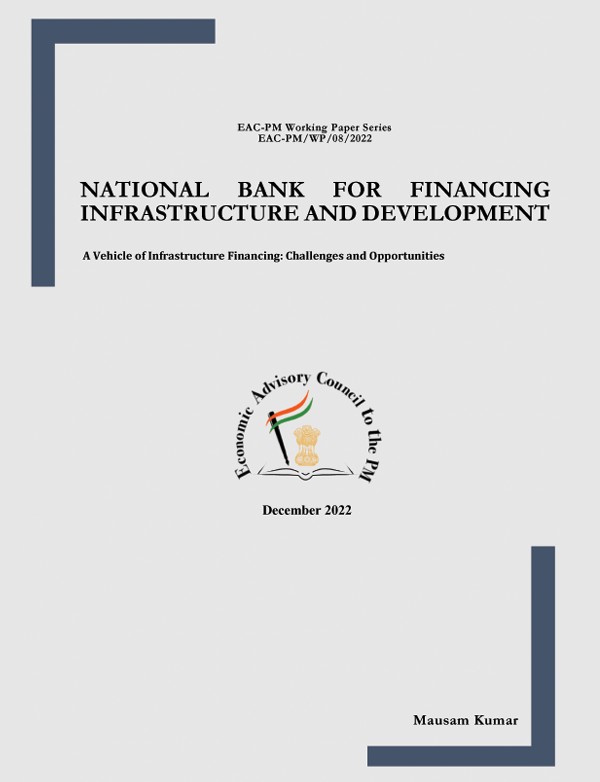
National Bank For Financing Infrastructure and Development
The Government of India has set up the National Bank for Financing Infrastructure and Development (NaBFID) as the central Development Finance Institution (DFI) for infrastructure financing. The idea is to establish NaBFID as the key DFI which provides financing to infrastructure projects under the broad developmental goals of the country.
View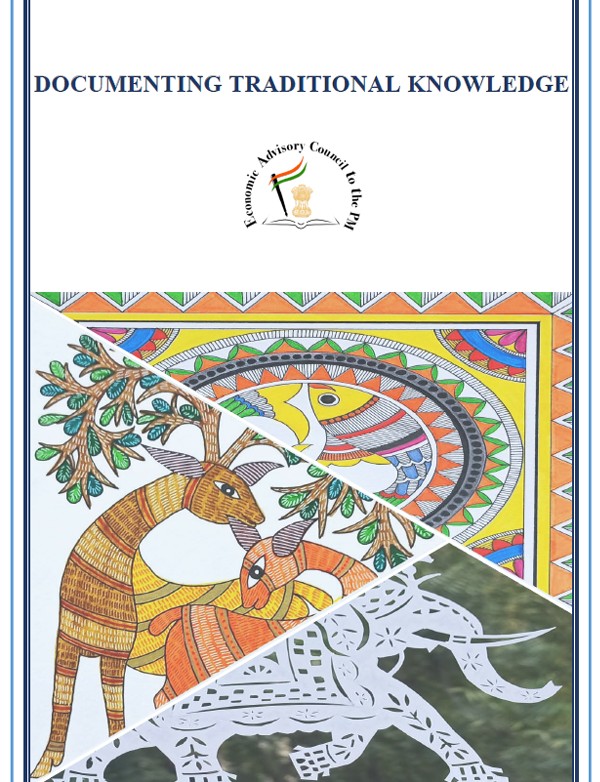
Documenting Traditional Knowledge
Ideas and inventions have been passed down from generation to generation within many communities since time immemorial. Today’s practice can be defined as a collective understanding of all inventions and developments that occurred over time and were then passed
down as Traditional Knowledge (TK).
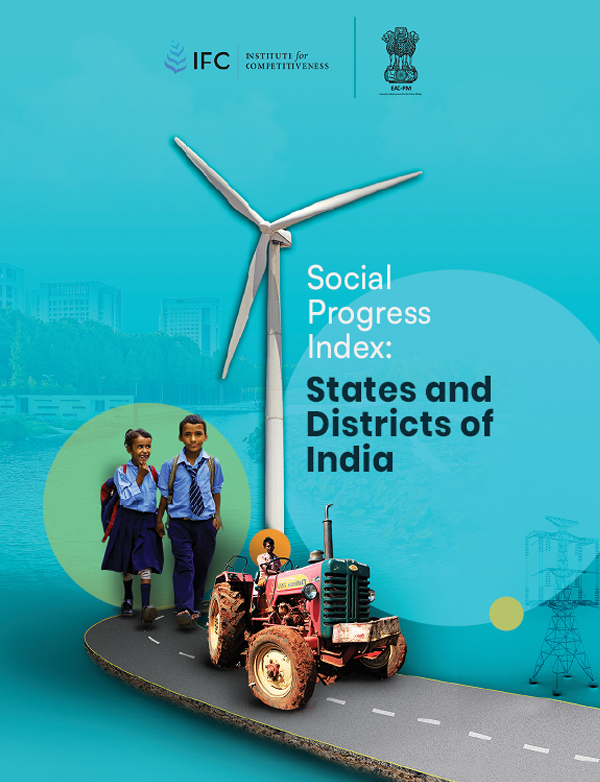
Social Progress Index: States and Districts of India
In collaboration with Social Progress Initiative, The Institute for Competitiveness is pleased to release the Social Progress Index: States and Districts in India report, mandated by the Economic Advisory Council, to the Prime Minister of India.
View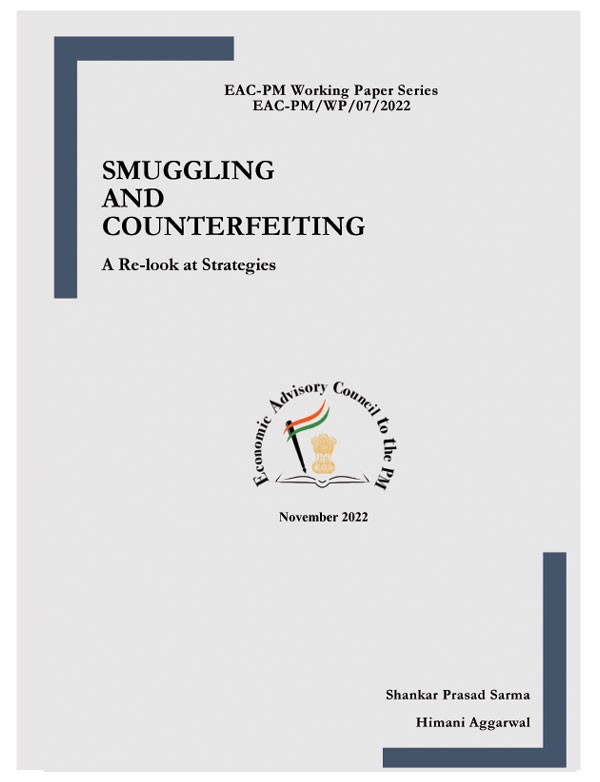
Smuggling and Counterfeiting
As the world, grapples with a host of problems, ranging from inflation and recessions to war and violence, the menace of smuggling and counterfeiting lurks in the underbelly of the economy.
View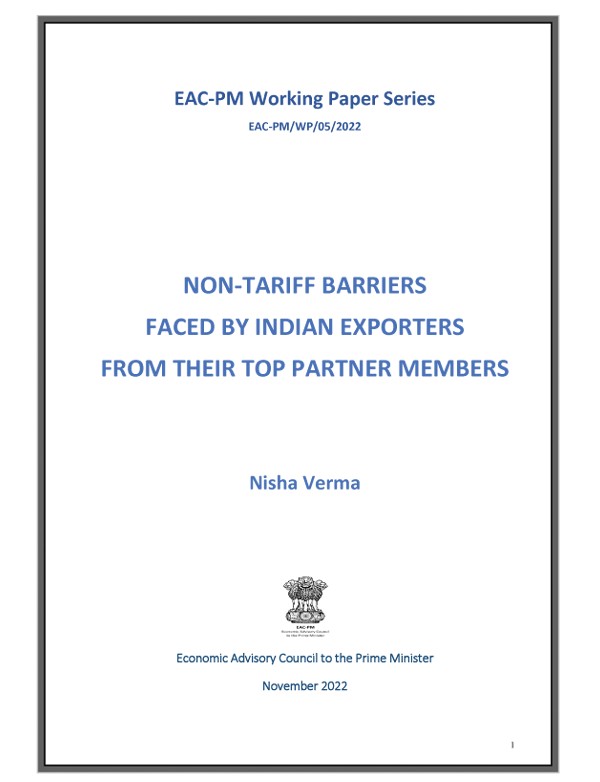
Non-Tariff Barriers faced by Indian Exporters from their top Partner Members
The intersection of barriers and measures are need to be examined more carefully by the WTO and should frame additional provisions to prevent the use of such barriers.
View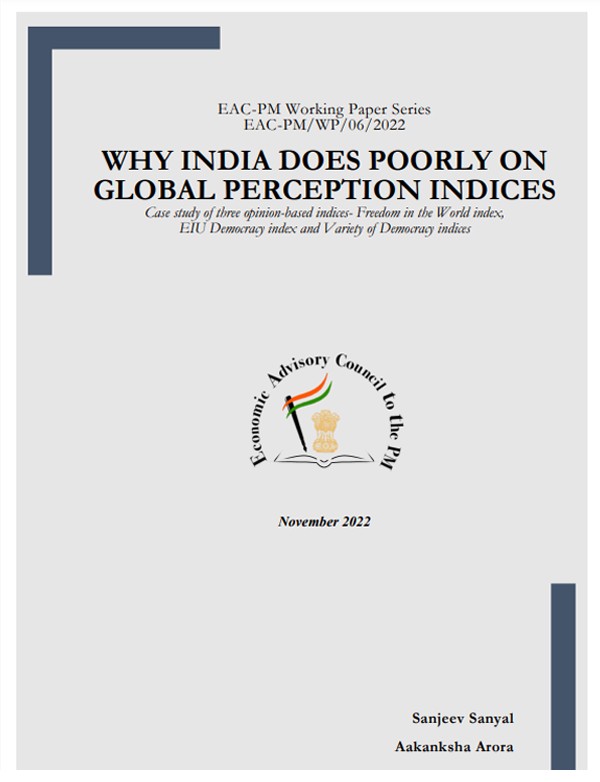
Why India Does Poorly On Global Perception Indices
In this paper we look at 3 indices which are used by WGI, which are Freedom in the World Index, Economist Intelligence Unit (EIU) Democracy Index and V-DEM indices. All three indices are almost entirely perception-based.
View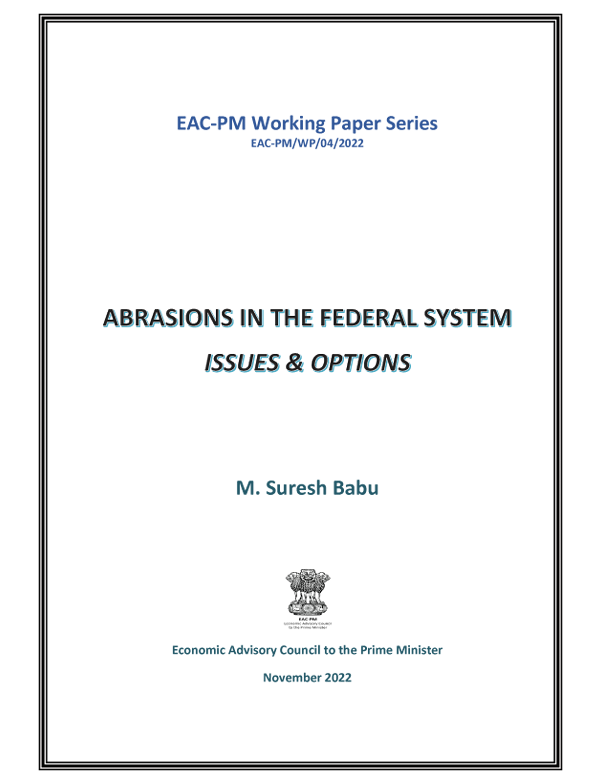
Abrasions in the Federal System
Sustaining a harmonious federal relationship can prove to be the route towards accelerated economic growth only if it opens up avenues for win-win situations for both the Centre and the states.
View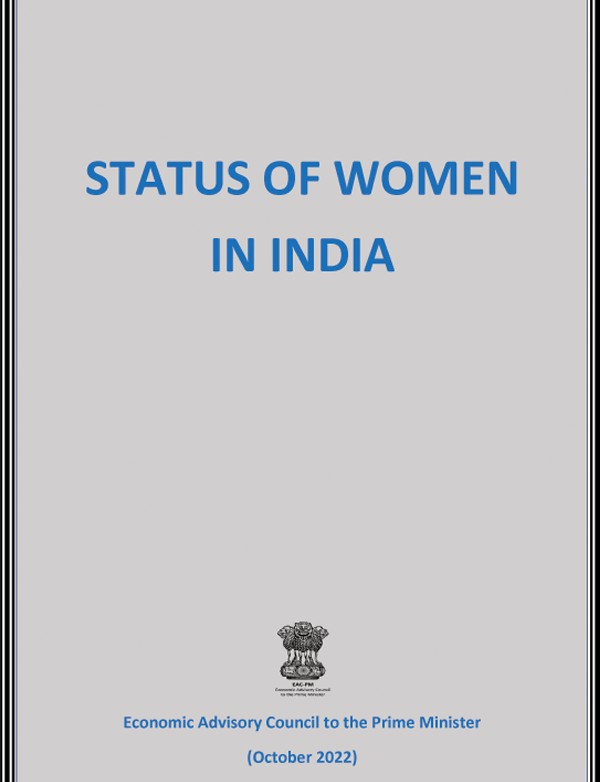
Status of Women in India
Gender inclusivity has emerged as an important leitmotif in global policy dialogues. India’s gender divide has been a matter of extensive debates and discussions.
View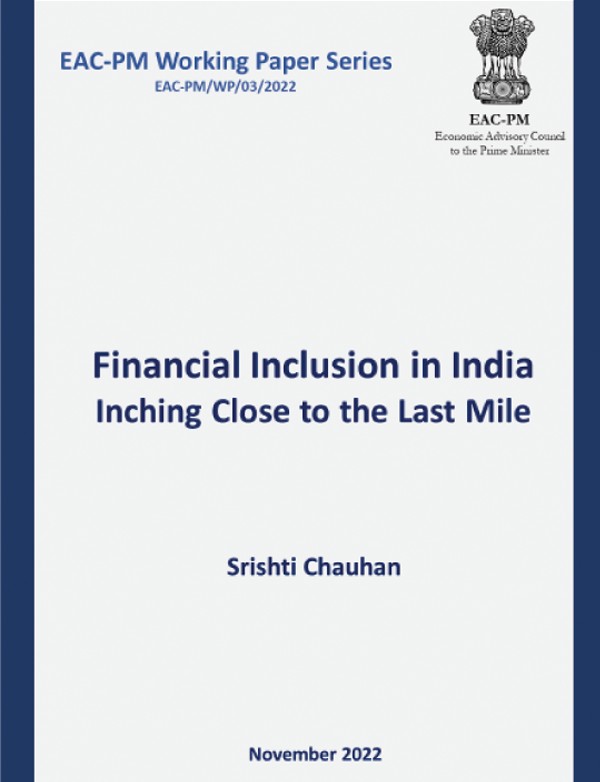
Financial Inclusion in India
Financial inclusion in India has seen a paradigm shift since 2014 with the introduction of JAM Trinity encompassing Jan Dhan Yojana (PMJDY) for universal banking access for all, Aadhaar for unique biometric identification, and mobile services for direct transfers.
View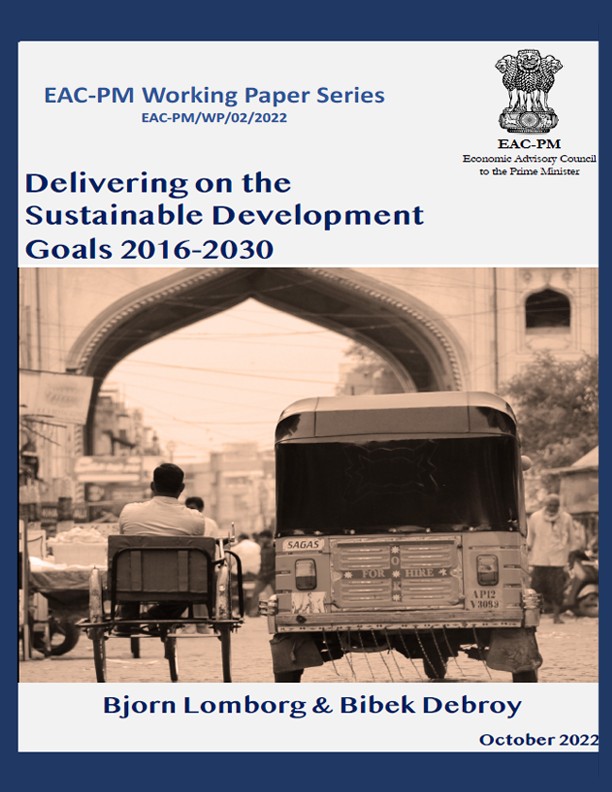
Delivering on the Sustainable Development Goals 2016-2030
The world and even India will not achieve the SDG promises on time, it is useful to consider which of the promises should be prioritised, to speed overall progress. Cost-benefit analysis can identify which policies generate the most socio-economic good for each extra rupee spent. Analysing more than one hundred relevant Indian policies, we identify 12 highly effective policies
View
Cultural Heritage: An Urgent Need To Popularize And Protect
The report makes an attempt to address various issues associated with India’s diverse and ancient composite heritage.
View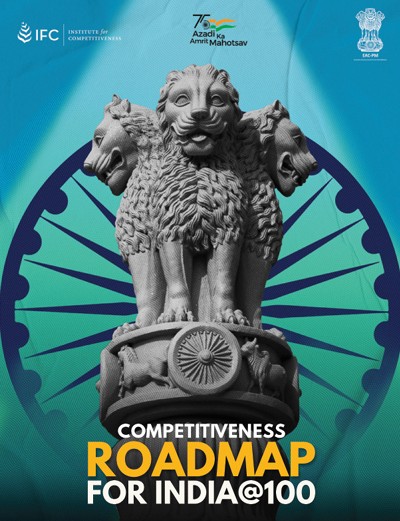
Competitiveness Roadmap For India@100
India Competitiveness Initiative is a multiyear effort towards enhancing prosperity and ease of living for its citizens. The initiative is a collaborative effort between EAC-PM, The Institute for Competitiveness headed by Dr. Amit Kapoor, Prof. Michael Porter and Dr. Christian Ketels from Harvard Business School.
View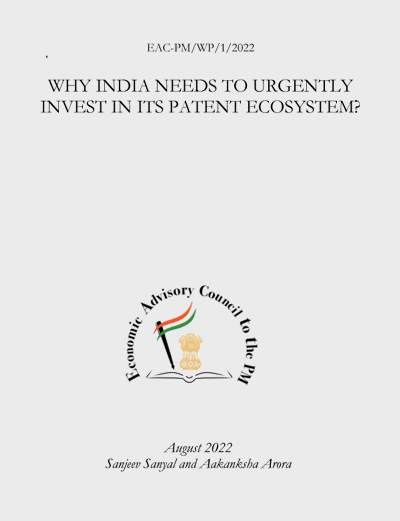
Why India Needs To Urgently Invest In Its Patent Ecosystem?
An evolved Intellectual Property Rights regime is the basic requirement for a knowledge-based economy. Technological innovation and scientific research require a robust patenting system. India is seeing a surge in start-ups and unicorns, and an efficient IPR system is an essential prerequisite for a healthy startup ecosystem. In this paper, we focus on analyzing India’s performance in terms of patents and trademarks.
View
Status of Foundational Literacy & Numeracy in India
The report on the State of Foundational Literacy and Numeracy in India highlights the importance of early education years in the overall development of a child. It further highlights the role of well-planned early interventions like the National Education Policy (2020) and the NIPUN Bharat guidelines, leading to long-term improved learning outcomes.
View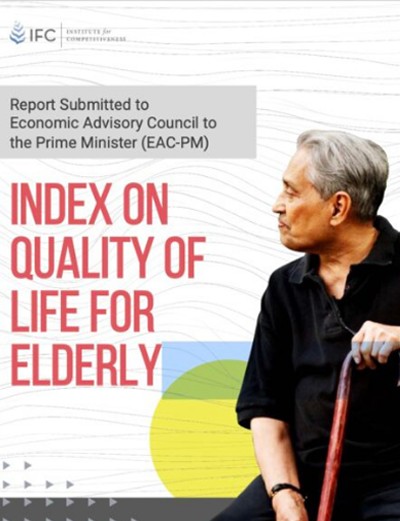
Index on Quality of Life for elderly
The Index on Quality of Life for Elderly 2021 represents a beginning in taking the first step in establishing a complete understanding of the elderly population around India’s States and Union territories.
View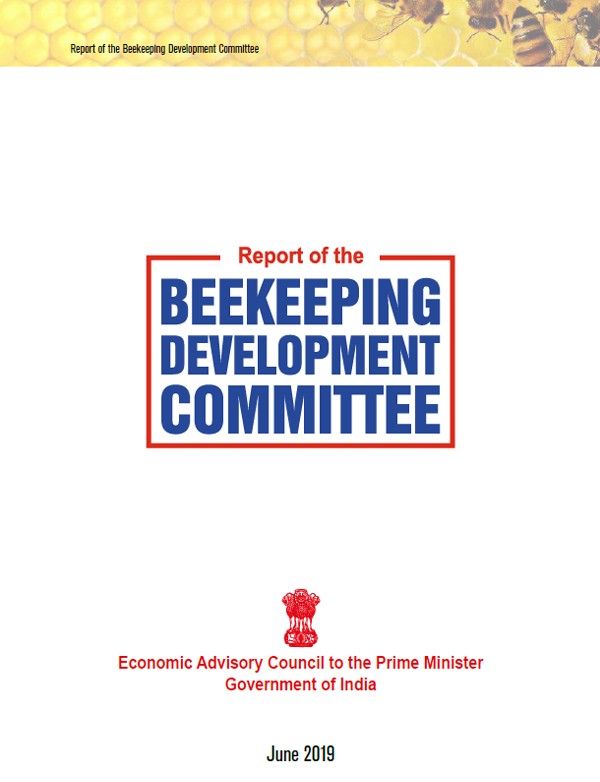
Beekeeping Development Committee Report
Beekeeping is an important activity that supplements and compliments agriculture and provides nutritional and economic security to rural communities worldwide.
View
Report of the Beekeeping Development Committee (Part-II)
This report contains all the Annexures for Report of the Beekeeping Development Committee
View
India’s G20 Presidency – Emerging Issues
With India’s G20 presidency, it is an opportunie moment to delve into economic, political and technological aspects that will define the future of G20 and India’s potential to influence the global agenda.
View
Share of Religious Minorities A Cross-Country Analysis
The global economy is in a phase of churn and being closely watched and analyzed by economists and policymakers everywhere. There are, however, major demographic transitions that are also underway across countries – but mostly going unnoticed by analysts ranging from economy watchers to democracy-watchers. These silent transformations have the power to reshape societies and states. Ironically, of the four megatrends whose cascading effects are bringing about these transformations -demography, technology, economy and climate change3- the forecasts for demography are the most predictable. Shifting demographic trends are aggravating economic disparity within and between countries, straining governance and fuelling friction between states and people.
View
Monuments of National lmportance
There has been almost no discussion about the existing list of monuments of national importance and how a monument or a site is so declared. Scores of minor and insignificant monuments have been declared as MNI. Therefore, the current list requires immediate attention for drastic rationalisation.
View
Documenting Traditional Knowledge
Ideas and inventions have been passed down from generation to generation within many communities since time immemorial. Today’s practice can be defined as a collective understanding of all inventions and developments that occurred over time and were then passed
down as Traditional Knowledge (TK).

Status of Women in India
Gender inclusivity has emerged as an important leitmotif in global policy dialogues. India’s gender divide has been a matter of extensive debates and discussions.
View
Cultural Heritage: An Urgent Need To Popularize And Protect
The report makes an attempt to address various issues associated with India’s diverse and ancient composite heritage.
View
Beekeeping Development Committee Report
Beekeeping is an important activity that supplements and compliments agriculture and provides nutritional and economic security to rural communities worldwide.
View
Report of the Beekeeping Development Committee (Part-II)
This report contains all the Annexures for Report of the Beekeeping Development Committee
View
Challenges of Solid Waste Management in Urban India
Waste generation increases as a result of rapid urbanisation and economic growth, placing tremendous pressure on the current management systems. Effective waste management has remained difficult despite the rapid economic expansion, indicating a gap in development strategies. The paper presents an in-depth study and analysis of solid waste management, highlighting the dual nature of solid waste as a challenge and an opportunity for Indian cities. It further emphasises that immediate sustainable waste management solutions are needed to solve environmental issues and achieve economic potential. Constructive approaches that involve public engagement and take geographical differences into account are essential. Through the implementation of sustainable practices such as waste disposal, reduction, reuse, and waste recovery, communities can turn waste from an issue into an asset that benefits the environment, the economy, and public health in urban areas. Although various regulations and laws have been introduced to improve waste management, such as the shift from centralised (2000) to decentralised (2016) approaches, challenges persist during the implementation process of these regulations. A shift towards responsible practices, along with investment in infrastructure, finance, technology, and awareness, are necessary to alleviate the challenges and achieve effective waste management.
View
Need for Franchising Laws in India
The term ‘Franchise’ is not explicitly defined within the Indian Legal framework. However, its interpretation can be deduced from the Finance Act of 1999, which stipulates that a ‘Franchise’ refers to an agreement granting the authorized entity the right to sell, manufacture goods, provide services, or engage in business activities associated with the Franchisor (Shrivastava & Jacob, 2023). India’s growing middle class and rising entrepreneurial culture make the nation fertile ground for emergent franchising opportunities. However, certain lacunas need to be addressed before realizing this ambition, notably the lack of franchise-specific laws. In contrast to many other countries – the United States, where the Federal Trade Commission (FTC) oversees franchising through the Franchise Rule, the European Union, where member states regulate franchising in their national laws, Australia, which has specific disclosure laws pertaining to franchises and the Australian Competition and Consumer Commission (ACCC) that regulates the code – India does not possess a centralized regulatory body or comprehensive franchise law at the national level. The landscape of franchisor-franchisee relationships is marked by diverse arrangements and contracts, giving rise to various forms of exploitation and disputes, particularly impacting smaller local vendors serving as franchisees due to the inherent information asymmetry. The franchisor, as the source of the business opportunity, has access to enhanced knowledge about the business as well as typically exercises greater control over the terms of the franchise contract, elucidating skewed power dynamics within the industry structure.
View
Addressing Groundwater Depletion Crisis in India: Institutionalizing Rights and Technological Innovations
Groundwater, a vital resource essential for sustaining agriculture, rural water supply, and urban consumption, is rapidly depleting in India. With overreliance on groundwater, constituting 62% of irrigation and 85% of rural water supply, India faces an imminent threat exacerbated by population growth, industrial demands, and urbanisation. A University of Michigan study projects a tripling of groundwater depletion rates by 2080, primarily driven by climate-induced intensified withdrawal for irrigation. It highlights the oversight in earlier projections and calls for urgent policy interventions to mitigate this crisis. Proposed measures include rationing power supply, metering electricity usage, regional water resource development, and incentivising farmers for groundwater recharge. The study places India within the global context of groundwater depletion, identifying it as one of the six environmental tipping points. Issues such as declining water quality, aquifer depletion, and land subsidence underscore governance challenges in India, necessitating sustainable management practices. This paper unfolds in three chapters, exploring the problem’s causes and impacts, policy measures from various states and globally, and solutions grounded in community rights and artificial recharge. It emphasises the imperative role of institutionalisation, drawing insights from global examples, particularly Latin America, South Africa, Germany, and Australia. The synthesis of global and Indian experiences highlights the need for a holistic approach, starting with institutionalising community rights and complementing it with technological interventions for sustainable groundwater management.
View
Revisiting complex conundrums of slum definition in urban policy: A case of India
Slums, often termed informal settlements, become the primary housing solution for low-income urban dwellers due to fierce competition for land and profits, leaving them with limited choices owing to their meagre incomes and lack of alternative housing opportunities. The paper delves into the global prevalence of slums, emphasising the significance of accommodating the urban poor, particularly in India. It explores the challenges faced by marginalised populations in planned cities and the critical need for precisely defining slums. The origin of the term ‘slum’ is traced, highlighting its evolving interpretation. The impact of rapid urbanisation on slum growth is analysed, emphasising the complex interplay of economic, social, and policy factors. The definition of slums is critically examined, along with the disparities and limitations in current categorisations. The paper highlights the evolution of slum policies in India, focusing on the role of definitions in shaping these policies, spanning from initial eradication strategies to current in-situ redevelopment initiatives, while examining the impact of evolving theories, the engagement of NGOs, and the persistent challenges in implementation. It scrutinises recent policies like the Pradhan Mantri Awas Yojana, featuring issues hindering effective slum improvement. Overall, the paper stresses the crucial link between clear slum definitions and successful urban poverty alleviation strategies.
View
Infrastructure Deficit in Land Transport Infrastructure in India
Over the past 75 years since Independence, India has made consistent strides in infrastructure development across various sectors such as transportation, housing, commercial development, telecom, and sanitation. Recognising infrastructure as a key driver of socioeconomic progress, the government has invested significantly in what is termed as ‘social overhead capital’, aiming to extend development to even the remotest corners of the nation. This strategic approach has involved dedicated budget allocations, cross-subsidisation of revenue-generating infrastructure, and focused program delivery, resulting in expanded physical transportation networks, enhanced connectivity, localised service provision, and increased digital penetration.
View
The 2023 India Cluster Panorama
This research paper delves into the concept of competitiveness and clusters, drawing inspiration from the seminal work of Michael Porter and guided by the empirical research conducted by Dr. Christian Ketels across various countries.
View
Foundational Literacy And Numeracy Report
Language plays a crucial role in shaping the identity of individuals as it determines how individuals interact with each other in the global world. At the same time, numerous issues related to acquiring literacy skills have become a significant concern.
View
Social Progress Index: States and Districts of India
In collaboration with Social Progress Initiative, The Institute for Competitiveness is pleased to release the Social Progress Index: States and Districts in India report, mandated by the Economic Advisory Council, to the Prime Minister of India.
View
Competitiveness Roadmap For India@100
India Competitiveness Initiative is a multiyear effort towards enhancing prosperity and ease of living for its citizens. The initiative is a collaborative effort between EAC-PM, The Institute for Competitiveness headed by Dr. Amit Kapoor, Prof. Michael Porter and Dr. Christian Ketels from Harvard Business School.
View
Status of Foundational Literacy & Numeracy in India
The report on the State of Foundational Literacy and Numeracy in India highlights the importance of early education years in the overall development of a child. It further highlights the role of well-planned early interventions like the National Education Policy (2020) and the NIPUN Bharat guidelines, leading to long-term improved learning outcomes.
View
Index on Quality of Life for elderly
The Index on Quality of Life for Elderly 2021 represents a beginning in taking the first step in establishing a complete understanding of the elderly population around India’s States and Union territories.
View
HOW TO DO PROCESS REFORMS?: CASE STUDY OF VOLUNTARY LIQUIDATION IN INDIA
Large number of process reforms have been done in recent years- including simplification of administrative
processes, changes in regulations and legislations, removing obsolete laws, closure of outdated government
entities and so on. Even if these changes appear small in many cases, they have led to significant efficiency
gains in the overall system. In this paper, we illustrate the impact of process reforms in the area of voluntary
liquidation of companies.
The purpose of this paper is to provide a case study of how a problem is identified, solved and the outcome
measured. The hope is that such a systematic study will lead to institutionalization of such reforms.
The bulk of companies that shut down worldwide every year are voluntary, rather than due to involuntary
causes such as insolvency or bankruptcy. In India, there are two main routes for voluntary liquidation. One
is under Section 248 of the Companies Act, 2013 and the second is Section 59 of the Insolvency and
Bankruptcy Code. For both, the process was very complicated and time-consuming until very recently as was
pointed out in the Government of India’s Economic Survey 2020-21 and 2021-22. The process reforms
carried out since then have completely changed the outcome.

The Great Convergence: A Case Study of Uttarakhand and Himachal Pradesh (2000 to 2020)
We compare the growth and transformation of Uttarakhand (UK) economy to that of Himachal
Pradesh (HP) over a period of two decades [2000-2020]. In particular, we examine the changes
in the industrial sector output, particularly in view of the Concessional Industrial Package (CIP)
for the Hill States announced by the central government in January 2003. What emerged
subsequent to the central government’s announcement is akin to a ‘natural experiment’ given the
close similarities of the two neighboring states. We study the approaches of the two states in
response to the CIP which resulted in differing long-term trajectories of growth for the two
neighbors. The only fundamental difference between the industrial policies of the two states was
in their land policies, while all others were identical. We find that UK was able to rapidly catchup and subsequently exceed the per capita income of HP within a relatively short period of time.
The state was able to better leverage the benefits of the CIP owing to a proactive and dedicated
approach to town planning and land use policy which has emerged as one of the most critical
impediments to industrialization and urban growth across India. We further investigate the
impact of subsequent industrialization on tax revenues and spending patterns of the two states
over two decades.

Time Spent on Employment-Related Activities in India: A Note
Recent remarks by leaders of corporate India have sparked an interesting public debate.
Their general point is that if India wants to become a developed nation, people will have to
work 70 hours a week or more. Assuming a six-day work week, this translates to 700
minutes per day on employment-related activities. So far, the public discussion has mostly
focused on efficiency versus quantity of work. Though this is an important aspect, it is
imperative to first understand how things stand on the ground by studying the available data.
That is, how much time is spent on employment-related activities across states, different
economic sectors, types of enterprises, rural versus urban differences, and differences
across genders and social groups within the country. In addition, this note also provides
evidence of the association between time spent on employment-related activities and the per
capita Net State Domestic Product (NSDP) at constant prices.

Female Labour Force Participation Rate
The female labour force participation rate (LFPR) is a crucial indicator of women’s economic
empowerment and overall economic inclusiveness. This research paper presents econometric
analysis highlighting a significant resurgence in female LFPR across Indian states, especially
in rural areas, since 2017-18. There are three broad themes for the empirical analysis: (1)
Recent trends in female LFPR, (2) The effects of marital status and parenthood on LFPR, and
(3) LFPR variations with age and gender across all regions and states of India.

India and Global IPR Treaties
To become an international player in the knowledge economy, India needs to take global IPR
treaties more seriously as these agreements create the framework for the country’s R&D
ecosystem to align with global best practices and accurately benchmark our performance with
international peers. In this EAC-PM Working Paper, we explore 4 such international agreements
and look at the pros and cons of each of them. These are the Strasbourg Agreement
Concerning the International Patent Classification 1971, Geneva Act of the Hague Agreement on
Industrial Designs 1999, Geneva Act of the Lisbon Agreement on Geographical Indications 2015
and the Design Law Treaty 2024.

AGROFORESTRY: MISSING TREES FOR THE FOREST
Despite being a tropical country, India has not been able to unlock the full potential
of agroforestry. India’s agroforestry sector remains under-utilised and stifled by regulation.
According to a study published in the journal of “Environment, Development and
Sustainability”, as of 2021, the area under agroforestry (defined as tree cover per cent greater
than 10 per cent on agricultural land) is estimated to be around 28 million hectares, which is
a mere 17 per cent of total agricultural land and is far less when compared to the global
average of 43 per cent. Agroforestry is India’s primary source of timber. As per the Indian
Council on Forest Research and Education (ICFRE), over 93 per cent of India’s domestic
timber was produced by “trees outside forests”, a majority of which are agroforestry plots.
However, a stringent, complex and cumbersome regulatory policy combined with a
conservation-led approach to forestry has stifled the growth of agroforestry in India.
Consequently, India has become a net importer of timber. In 2023, India imported over
USD 2.7 billion worth of timber1
(ITTO 2023), which equals almost 12 per cent of all agrobased imports for the same year (Damodaran 2024)

Relative Economic Performance of Indian States
Most papers regarding economic performance of states deal with the real and nominal growth rates
of states over time. In this paper, we have focused exclusively on the relative performance of states,
measured using two indicators- (1) Share in India’s GDP and (2) Relative per capita income.The state’s share in India’s GDP is calculated by dividing the Gross State Domestic Product
(GSDP) of the state by the sum of GSDP of all states. Relative per capita income is calculated
as the ratio of the per capita Net State Domestic Product (NSDP) of the state as a percentage
of the all-India per capita Net National Product (or Net National Income in some years). An
important point to remember here is that per capita NSDP means that it does not include
remittances which may be important for states like Kerala, Bihar and Uttar Pradesh. We have
made adjustments where possible for state bifurcations and other factors to ensure comparability.
All data used are in current prices. The analysis spans a long period, from 1960-61 to 2023
24, providing insights into how individual states have performed in response to changes in national
and state-specific policies.

Changes in India’s Food Consumption and Policy Implications
Significant changes are unfolding in India’s food consumption pattern, with serious
implications for our national agriculture, health, nutrition, and overall welfare policies that
target poorer sections of society. The changing consumption basket of Indians will also impact
the calculation of the Consumer Price Index in the future. A comprehensive analysis of the
Household Consumption Expenditure Survey 2022–23 and comparisons with 2011–12 reveal
striking changes in food consumption patterns over the last ten years, with potential
implications for health outcomes. This comprehensive study is presented in four chapters.

Igniting the Bright Spark Through the Looking Glass on Electric Mobility in India
Compulsions of climate change commitments, caprices in oil prices coupled with a rapid acceleration of battery technologies have together led to a sharp increase in electric mobility worldwide. In the Indian context, a slew of measures – on the demand side as well as on the supply side have been announced from time to time. However, the results have been mixed.
View
Economic Performance of Parliamentary Constituencies UPA (2) versus NDA (Modi Years)
In a vibrant democracy, assessing the economic performance under different political regimes is crucial. Typically, the debate is limited to comparing growth rates or poverty reduction at the macro level. However, for a more meaningful analysis of politics in action,
View
A Complex Adaptive System Framework to Regulate Artificial Intelligence
The field of Artificial Intelligence (AI) has been making significant strides, with advancements in computer vision, language processing, robotics, and many other emergent areas. This rapid development, however, has raised substantial concerns about the risks associated with uncontrolled AI propagation.
View
Why Commercial Mediation Should be Voluntary
For the mediation system to be effective, it must earn its place in the dispute-resolution ecosystem by its performance and not by a mandate. Hence, Section 12A of the Commercial Courts Act, 2015, must be amended to make pre-litigation mediation for commercial cases voluntary.
View
How the Pennies Drop
This paper delves into the trends of GST collections to evaluate the efficacy of the reform to generate revenue. Subsequently, an attempt is made to answer the questions – what drives revenue growth and whether the collections; collection efficiencies and buoyancy of collections are better under GST as compared to the pre-GST period. This is done by examining the GST collections while controlling for extraneous factors such as inflation.
View
Exploring the Possibility of Organic and Climate Resilient Agriculture Revolution in the North East
The vision of the Hon’ble Prime Minister for the North Eastern Region of Bharat can be developed as the Organic agriculture hub of not only India but of the world, which would double up as the reservoir of knowledge and practice of ancient, climate resilient crops and seeds.
View
Reforming the Legal Metrology Regime
The Legal Metrology Act, 2009 (“2009 Act”) which establishes and enforces the standard of weights, measures and labels used in the commercial sector, has long been subjected to criticism for harsh punitive measures and complexity of its labeling regulations.
View
Assessing the National Surveys for its Representativeness
This paper is a quantitative analysis of the data quality of the National Sample Survey (NSS) in terms of three estimates.
View
State Budgets in India: Observational Time Trend Analysis
State budgets reflect the state government’s social and economic priorities beyond the political rhetoric in the media. Analyzing time trends and the composition of the revenue, expenditure, and capital outlay can provide valuable insights into how these priorities have evolved for different states in the last thirty years.
View
Making India Self-Reliant
India needs an alternative and a self-reliant development model “with Indian characteristics.” The Indian model of growth and development should encourage trade liberalization, but safety nets should be in place to address displacement issues.
View
A Secular Democracy in Practice: Objective Assessment of Amenities Programs in India
Our results indicate that the government is responsive to the needs of the marginalized section of society irrespective of religion, caste, or place of residence, which is an alternative and more robust indicator of strengthening democracy in India.
View
India’s Tryst with a Circular Economy
The concept of a circular economy has gained immense popularity in recent times, as it provides a sustainable solution to the current linear economic model. In a circular economy, resources are kept in use for as long as possible, waste is minimized, and products are designed to be reused or recycled at the end of their life.
View
Fixing the GST Process: Five Years of Iterative Problem Solving
The paper, examines the topic from the perspective of process efficiency and the ability of the system to correct by responding to feedback loops. It delves into areas such as customer complaint rates, responsiveness of the Goods and Services Tax Network (GSTN), time taken for redressal, and the technological tools being used to improve interactions with taxpayers.
View
What is “Urban/Rural” India?
The issue of labeling settlements as “urban” and “rural” has important policy implications in India since the label determines the local governance structure (panchayat or urban local body) and the allocation of resources under government schemes. Policymakers often work on the faulty assumption that “rural” is a proxy for “poor” and accordingly spend greater resources on provisioning of public goods in areas defined as “rural”. However, the current classification uses a combination of administrative definition and census criteria which are often inadequate in capturing speed and scale of urbanization in India.
View
Reversing the Gaze
India’s poor performance on certain development indicators has been a matter of hot debate in recent years. These debates often arise because some socio-economic indicators, as estimated by international agencies, seem to stagnate or even deteriorate despite a rise in per capita income in India. In this paper, we examine whether or not these estimates stand up to scrutiny.
View
Enumeration of Legislative Powers in India
Enumeration of legislative powers in the seventh schedule of the Indian Constitution has been an important topic in the study of federalism in India. The success of a federation depends on several factors but the accuracy of power distribution is an important one.
View
The Need for Amending Indian Evidence Act, 1872
The Indian Evidence Act continues to serve as a stable foundation for resolving disputes and protecting rights, but it is also crucial to consider the need for modernization and the evolution of the legal system better to serve the needs of a rapidly changing society.
View
Fair Compensation and Accountability
A codified law of torts would eliminate the need to keep developing new legislation each time a new form of injury or violation occurs.
View
India on the move
An examination of volume and direction of internal trade in India. While there is an almost unanimous view of the benefits of trade – fueling economic growth, supporting a greater number of and better paying employment, raising living standards and enhancing the consumer surplus with affordable goods and services, contemporary research has primarily looked at external trade i.e. trade across national borders. This has led to an under-appreciation of the quantum and the effects of internal trade i.e. trade within national borders. This is of particular significance for larger economies such as India.
View
Traditional Water Conservation
A working paper on reasons for decline and need for revival of water conservation by Sankar Prasad Sarma and Himani Aggarwal.
View
National Bank For Financing Infrastructure and Development
The Government of India has set up the National Bank for Financing Infrastructure and Development (NaBFID) as the central Development Finance Institution (DFI) for infrastructure financing. The idea is to establish NaBFID as the key DFI which provides financing to infrastructure projects under the broad developmental goals of the country.
View
Smuggling and Counterfeiting
As the world, grapples with a host of problems, ranging from inflation and recessions to war and violence, the menace of smuggling and counterfeiting lurks in the underbelly of the economy.
View
Non-Tariff Barriers faced by Indian Exporters from their top Partner Members
The intersection of barriers and measures are need to be examined more carefully by the WTO and should frame additional provisions to prevent the use of such barriers.
View
Why India Does Poorly On Global Perception Indices
In this paper we look at 3 indices which are used by WGI, which are Freedom in the World Index, Economist Intelligence Unit (EIU) Democracy Index and V-DEM indices. All three indices are almost entirely perception-based.
View
Abrasions in the Federal System
Sustaining a harmonious federal relationship can prove to be the route towards accelerated economic growth only if it opens up avenues for win-win situations for both the Centre and the states.
View
Financial Inclusion in India
Financial inclusion in India has seen a paradigm shift since 2014 with the introduction of JAM Trinity encompassing Jan Dhan Yojana (PMJDY) for universal banking access for all, Aadhaar for unique biometric identification, and mobile services for direct transfers.
View
Delivering on the Sustainable Development Goals 2016-2030
The world and even India will not achieve the SDG promises on time, it is useful to consider which of the promises should be prioritised, to speed overall progress. Cost-benefit analysis can identify which policies generate the most socio-economic good for each extra rupee spent. Analysing more than one hundred relevant Indian policies, we identify 12 highly effective policies
View
Why India Needs To Urgently Invest In Its Patent Ecosystem?
An evolved Intellectual Property Rights regime is the basic requirement for a knowledge-based economy. Technological innovation and scientific research require a robust patenting system. India is seeing a surge in start-ups and unicorns, and an efficient IPR system is an essential prerequisite for a healthy startup ecosystem. In this paper, we focus on analyzing India’s performance in terms of patents and trademarks.
View